Introducing Jehan Tremback: Sommelier Core Developer and Althea Co-Founder that pushes the Limits of the Blockchain Bridge with Gravity
Meet Jehan Tremback, Sommelier core developer and cofounder of Althea, for which he served as initial CEO. Jehan didn’t always know what he wanted to do, but he liked to trade ideas and build things.
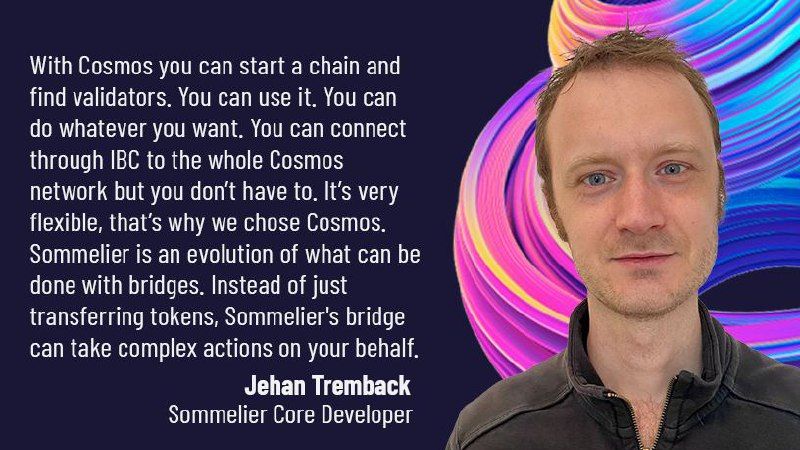
“I don’t have the same background as a lot of people in tech do. I didn’t actually go to school for computer science. I worked construction for a few years before going to college because I was not sure what I wanted to study. I ended up studying industrial design, dropped out, and started making Wordpress sites. That was a long time ago.”
Jehan kept learning to build until he built himself a wheelhouse. He moved from making Wordpress sites to doing javascript front end and back end development.
But first, there was a good friend who introduced him to crypto in about 2013-14.
Hello Crypto!
Jehan’s friend was really into crypto. He recalls: “He helped me find my first 100 Litecoins. The price might have been $2 each. I went to an ATM and took out $200 cash and he went on whatever the exchange was at the time that had Litecoins and bought them for me. I also earned three Bitcoins back then, too, but I forgot the password. That cost about $300.”
He was intrigued and began to focus on what could be built in the crypto world. It was just before Ethereum was launched. Jehan was programming with early stuff, like Serpentine, and says: “I was also a little bit involved in Tendermint and, it wasn’t Cosmos at the time, but I had friends working on the first iteration.”
When Ethereum came along he was impressed at what it allowed you to do. He says: “Everybody was hyping Bitcoin at the time, talking about how Bitcoin Script would let you program stuff, but Bitcoin Script is terrible for programming stuff. So, your choices are limited. Well I thought Ethereum actually does what everybody is hyping Bitcoin for. That really got me into Ethereum.”
Enter Althea
By 2015, Jehan started work as an independent contractor so he had the flexibility to take time off to work on his own projects, one of which he called Althea. He says that was the year that he “came up with an early kind of white paper for it, which had some gaps but are sort of the general outlines of what we’re doing now.”
The idea occurred to him while participating in a local hackerspace meshnet meetup. He explains: “We were trying to put a meshnet up in Oakland and I thought that if you could incentivize this with crypto it would be perfect.”
Althea is a way for people to set up local mesh networks in the form of local little ISPs in their town with wireless equipment. It brings them fast internet service and a chance to make a little income as well.
Jehan says: “People are able to use the equipment by putting stable coins right in the router. That then pays all the other routers that are on the path to get you to the internet. What that means for people on the ground is when you’re using it you just log into an app on your router and pay your bill with stable coins. And people who have other people, their neighbors, connecting through them are able to earn some money. So, that incentivizes people who have property that is good for connecting other people, such as a tall building or a place high up on a hill, to set up some nodes. That’s the basic principle of Althea.”
Going Farther Together
In 2016, Jehan noticed that a guy called Justin Kilpatrick was working on the same kind of stuff. In fact, Justin had been working on the mesh network idea he called HocNet in 2014 and was starting back up. He launched a little campaign to get to know him. He smiles when he describes his pursuit:
“I subscribed to his Subreddit, I joined his IRC channel, and I started messaging him. We started the Althea project, working together to fill in the holes in my white paper draft and publish the first white paper. We decided to take the name Althea because he was calling it HocNet and we thought Althea rolls off the tongue a little nicer.”
Jehan and Justin posted that in early 2017 on the Ethereum Subreddit, which at the time was the main venue for Ethereum discussions. “I went and did some talks. I did a talk at a meshnet conference in Europe. Deborah Simpier, our other cofounder of Althea and now the CEO, watched it on YouTube and got in touch with us because she wanted to start an Althea network in her town, Clatskanie, Oregon.”
Later in 2017, Althea raised some money and helped Deborah set up a network in her town. He observes: “At the time she wasn’t an employee yet. She was setting up radios and stuff. She wasn’t running the actual software, which wasn’t done yet, she was running a very basic test platform we were using to test various parts of it. Deborah probably got started on the ground later in 2017.”
The following year, Althea raised some money and Justin and Deborah were able to come on full time. “We hired Deborah as a customer support on-the-ground-person for about a month and decided we had to promote her to COO, because she kicks ass, obviously,” says Jehan. “We had some money, we hired some employees to start working on the low-level code that runs on the routers. Justin spearheaded that as the CTO. I was the CEO. We worked on it for a while and we were always pushing code to Deborah’s network in Clatskanie to test it. We had a lot of people reach out to us from around the world wanting to start their own networks. They had varying degrees of success. It’s kind of like starting a business.”
The team had some cool adventures, such as going to Columbia to set up a network in Medellin. Jehan recalls: “We set up a network in one of the poorer parts of Medellin. It was very interesting there because they don’t have roads, there were just these brick huts with stairways between them. There are a few roads but higher up you just have to walk up. That was pretty fun.”
Choosing Cosmos
In late 2019, Jehan decided to step down as CEO and promote Deborah to the role. He says: “We had kind of finished the software, it was pretty solidified, and it was -- and still is -- about scaling. The growth phase.”
But first, something had to be done to address the rising fees on Ethereum. Jehan shares the journey from realization to the solution that took them to Cosmos and Althea’s current work on a Gravity bridge:
“When we started we were running on Ethereum. It was fine back then, too. The fees were really low. Now, it’s totally nonviable, of course. We had initially wanted to use payment channels to save on gas fees. The thing with payment channels though, is that if you use a hub-and-spoke system where it’s being routed through many different channels it requires a lot of programming effort to get that to work right. It still ends up being pretty centralized most of the time. And, we just didn’t have the capacity to build a mesh network and then also build a mesh of channels. Nobody’s actually done it yet even, except for the Lightning network. It’s a pretty big job. So we realized we weren’t going to have time to do that.
All the payment channels on Ethereum I’m aware of right now, you basically go through one hub that the developers of the protocol are running themselves. It’s somewhat trustless, they can’t steal your money but they can censor your transactions. We didn’t really want to go with that and we also didn’t want to build a network payment channel, that’s really pretty complex. What we were doing for a while was we had payment channels where they were being opened directly, so you have a payment channel for each of your neighbors.
But what Justin realized is that you also have to spend a good amount of gas to reload a payment channel. You could put a huge amount of money into each channel so you never have to reload, but the user doesn’t want to lock up $1,000 just to start their internet service even if they’re getting it back. That doesn’t make sense to a normal person. And so probably the best thing was to move to a cheaper blockchain. At the time there weren’t many other next-generation blockchains besides Ethereum out there. Now, of course, there are many “Ethereum killers” and stuff but Cosmos is still the only system where you have sovereignty.”
Jehan explains why Althea chose to work with Cosmos. He says:
“With Cosmos you can start a chain and find validators. You can use it. You can do whatever you want. You can connect through IBC to the whole Cosmos network but you don’t have to. It’s very flexible, that’s why we chose Cosmos.”
Building a Bridge to Lower Fees
Althea needed a bridge. Jehand explains how they started working on the Gravity bridge that is critical to Sommelier and will also become part of the main Cosmos Hub. He says:
“We had been using xDAI, which is like an Ethereum side chain. It’s proof of authority which just means that it’s run by some dudes. They’re not staking money. It’s not really a fully trustless proof-of-stake system. But they have a bridge to Ethereum. We needed that because it’s very easy to buy stable coins on Ethereum. You can do it almost everywhere in the world, every country has some kind of Ethereum exchange. So we need a bridge to our blockchain from Ethereum so value can get in and that’s what Gravity is for. That’s why we started working on Gravity. Deborah got us some grants from ICF and UnifiDAO because it’s generally a thing that’s needed for the entire Cosmos ecosystem as well and we started working on it because we needed it.”
Earlier last year the Althea team was working on Gravity as “Peggy JV” Jehan says he thinks of Sommelier’s Gravity bridge as an evolution of that. He explains how his journey led to a core developer role at Sommelier:
“I’ve known the people involved with Sommelier, Taariq, Zaki, and Jack for several years,” he says. “I think Sommelier is an evolution of what can be done with bridges. Right now we’re focusing on the Uniswap LP use case, but there’s a lot more to explore. Instead of just transferring tokens, Sommelier's bridge can take complex actions on your behalf."
“Gravity Bridge, which Sommelier is built on, can run arbitrary logic on Ethereum, at the command of the Sommelier chain. Most blockchains, such as Ethereum and Bitcoin, cannot take actions on their own. They run on a model where everything starts from a transaction that is sent in by a user. They can only react, never initiate an action. Sommelier, on the other hand, is always running and can take actions on Ethereum for its users. It’s like a money manager, but completely decentralized and autonomous.”
You can reach out to Jehan and other Sommeliers on our Discord 👉 https://discord.gg/Y4p6eB5Eyr
More articles

Is Speculation Killing Crypto’s Future?

Sommelier's Path Forward: Embracing Revenue Over Narrative

Sommelier January Update
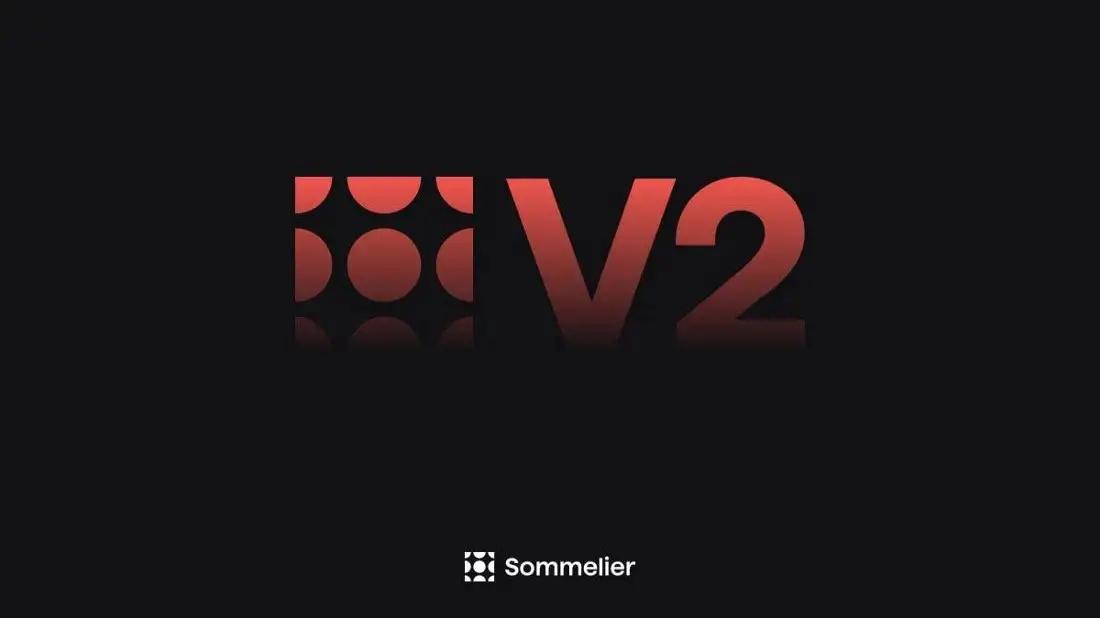
Sommelier Upgrades Cellar Architecture to Enable the Most Powerful DeFi Strategies in the Market
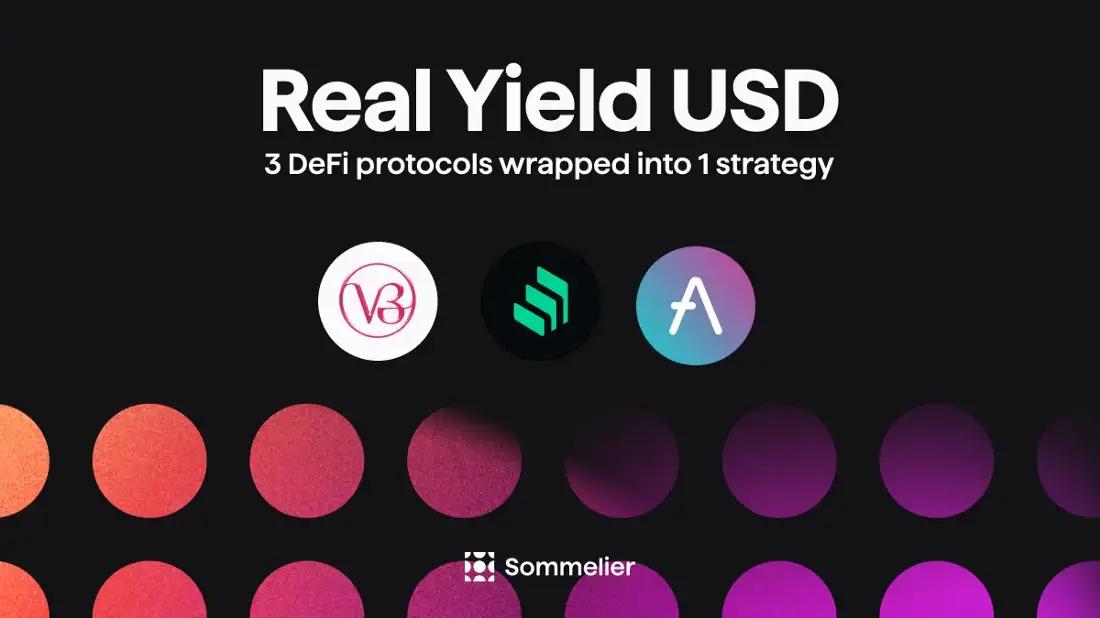
Real Yield USD is Coming to Maximize Stablecoin Yield
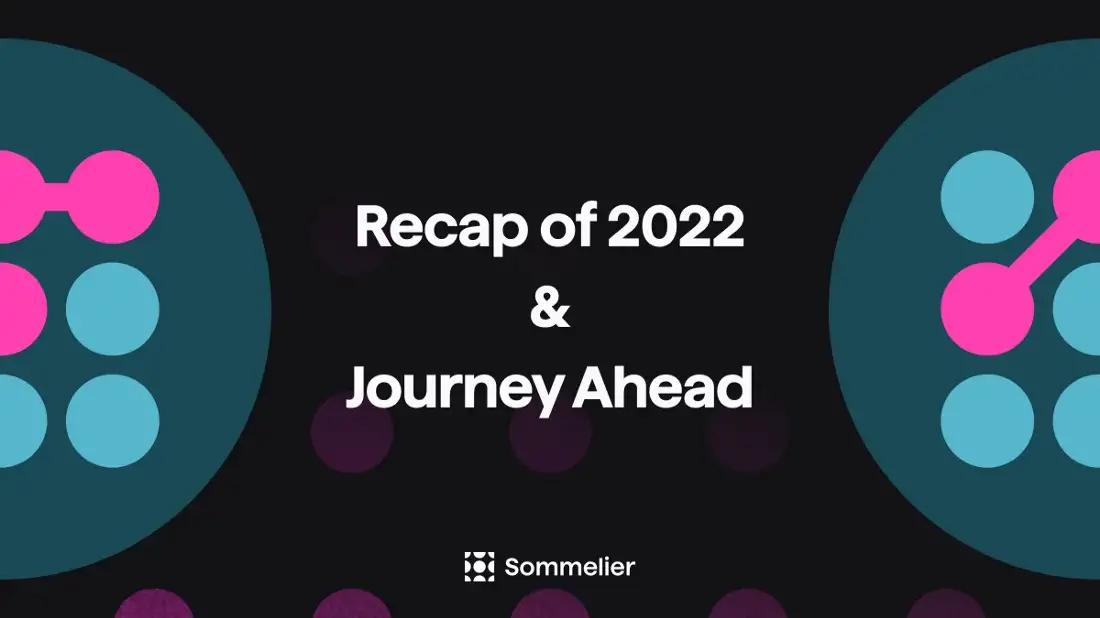
Retrospective on 2022 and the Journey Ahead
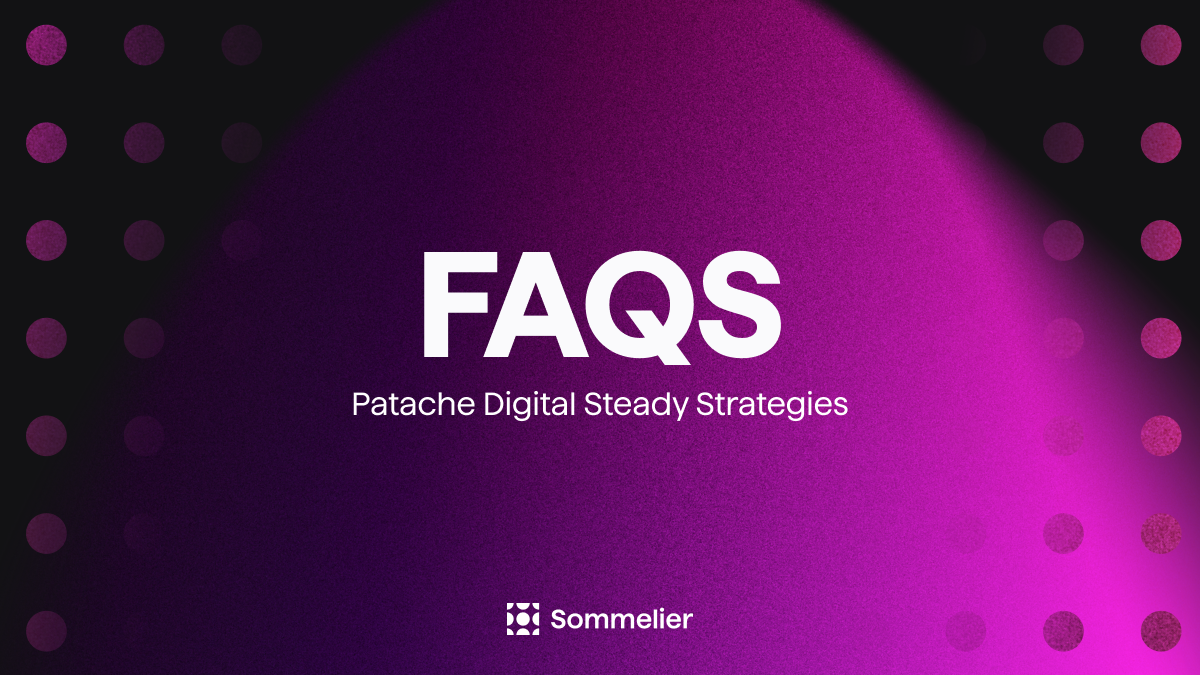
FAQ - Patache Digital’s Steady Strategies
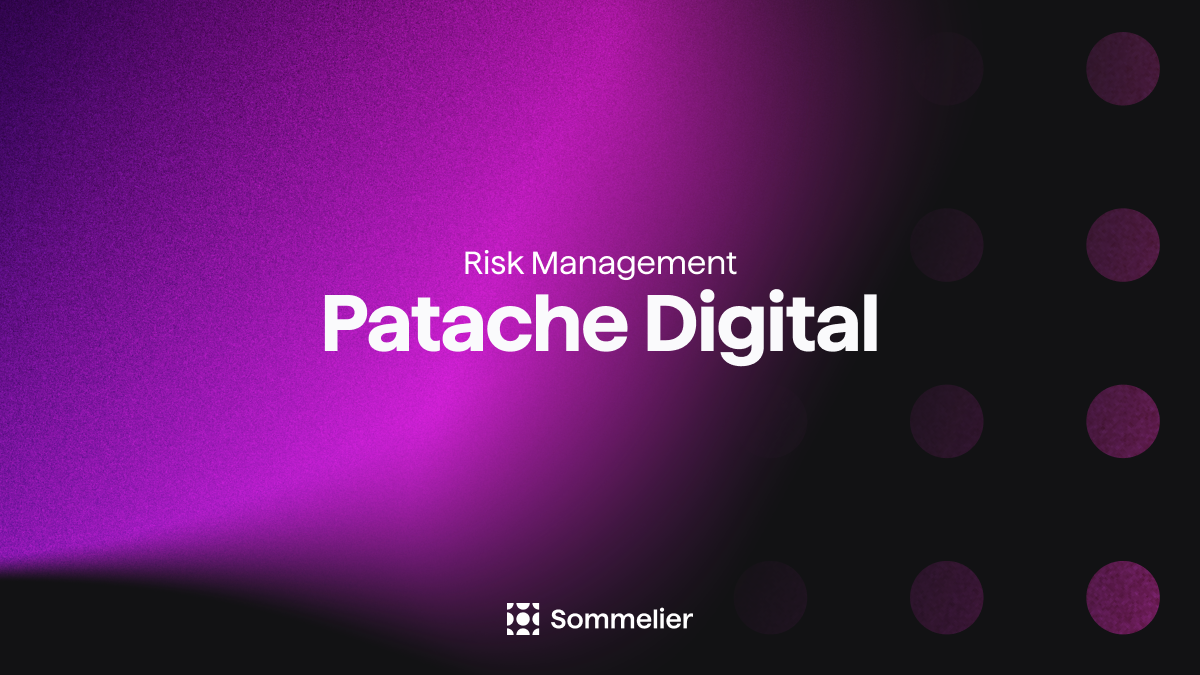
Patache Digital: Risk Management Discussion
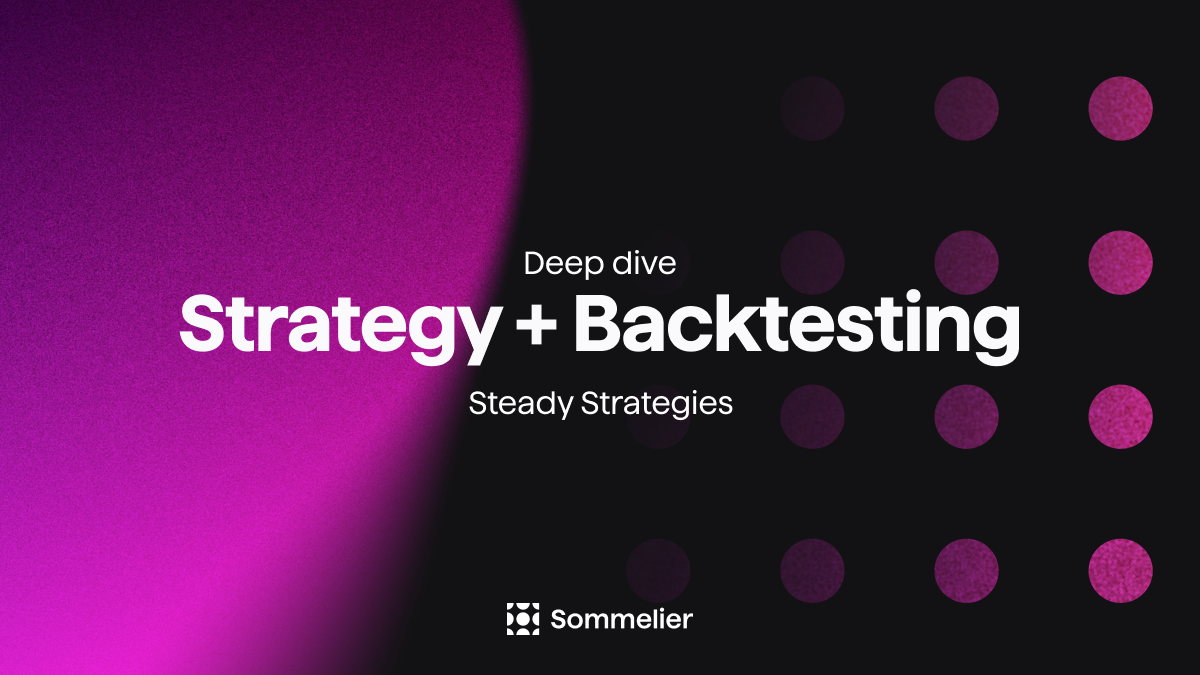
Strategy Deep Dive: Patache Digital
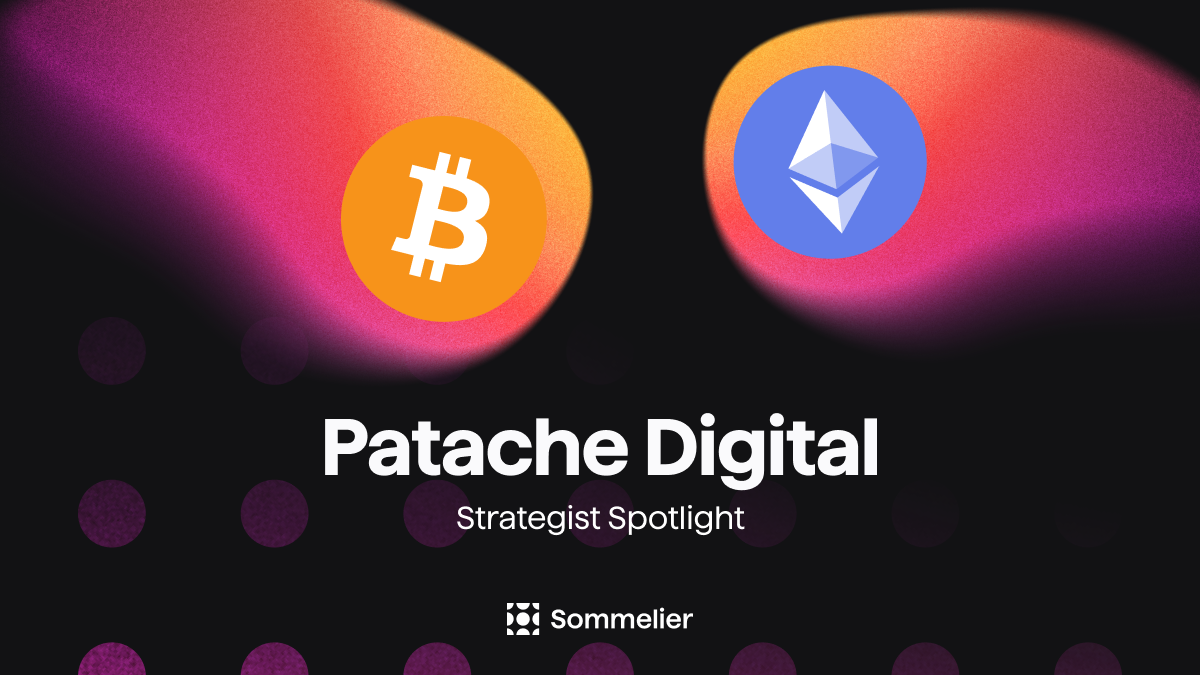
Strategy Provider Spotlight: Patache Digital
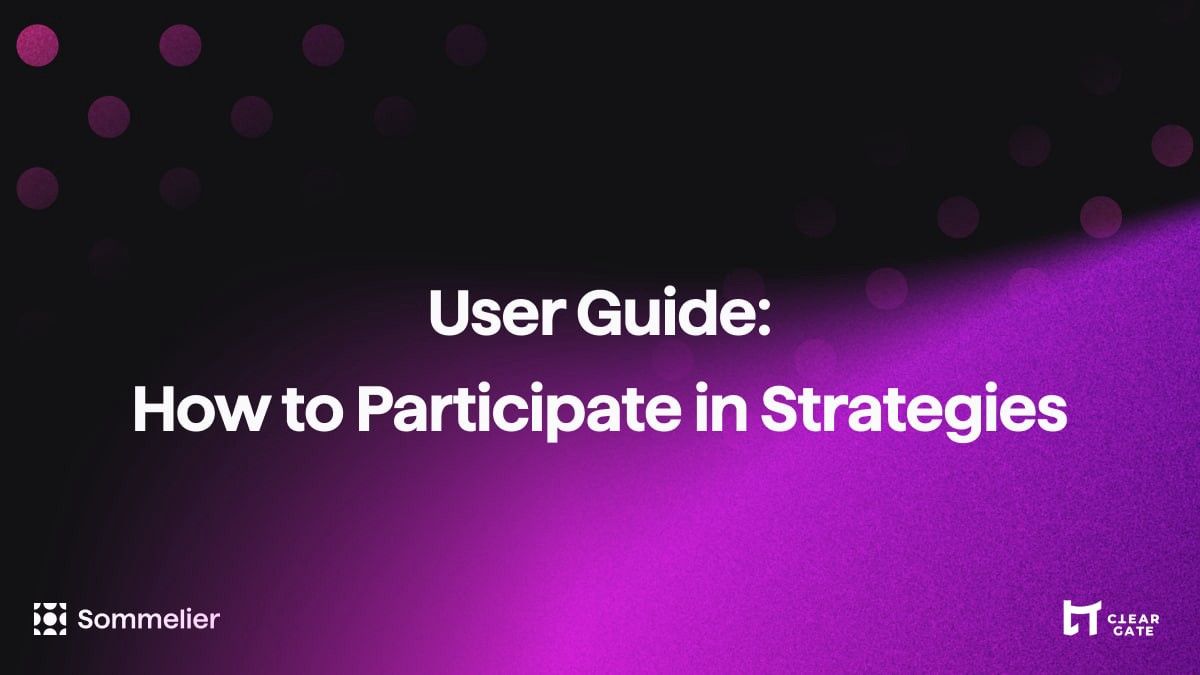
User Guide: How to Participate in Strategies on Sommelier

Sommelier Ambassador Program
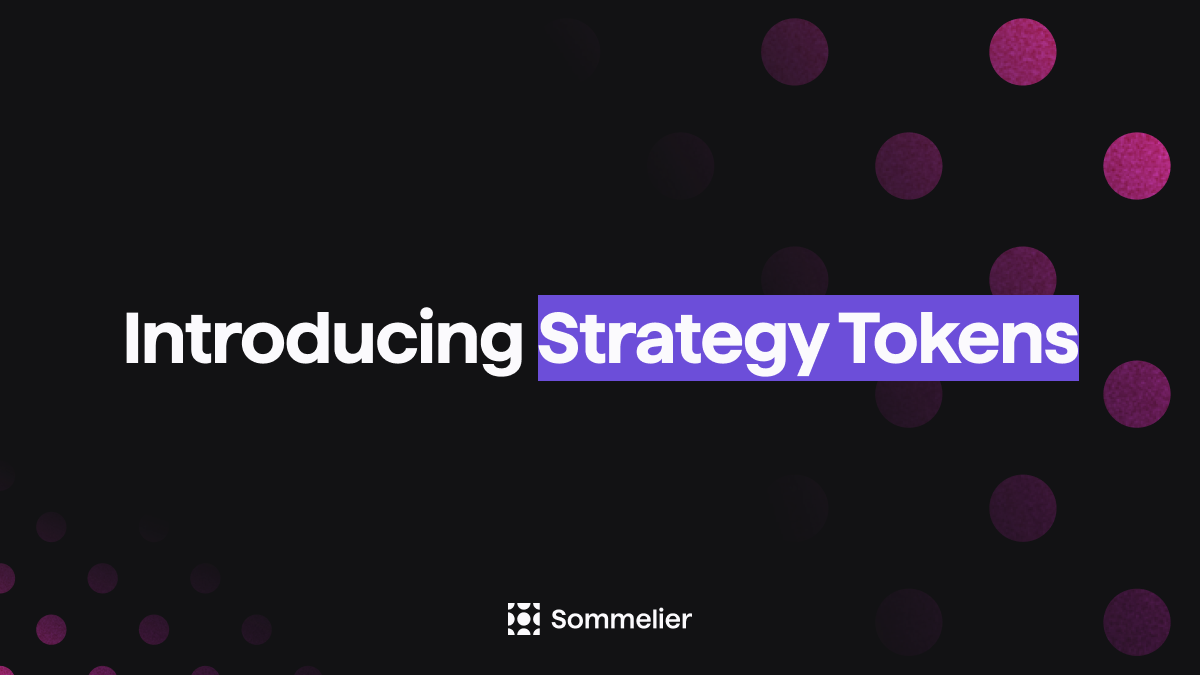
Strategy Tokens: What Are They and How Do They Work?
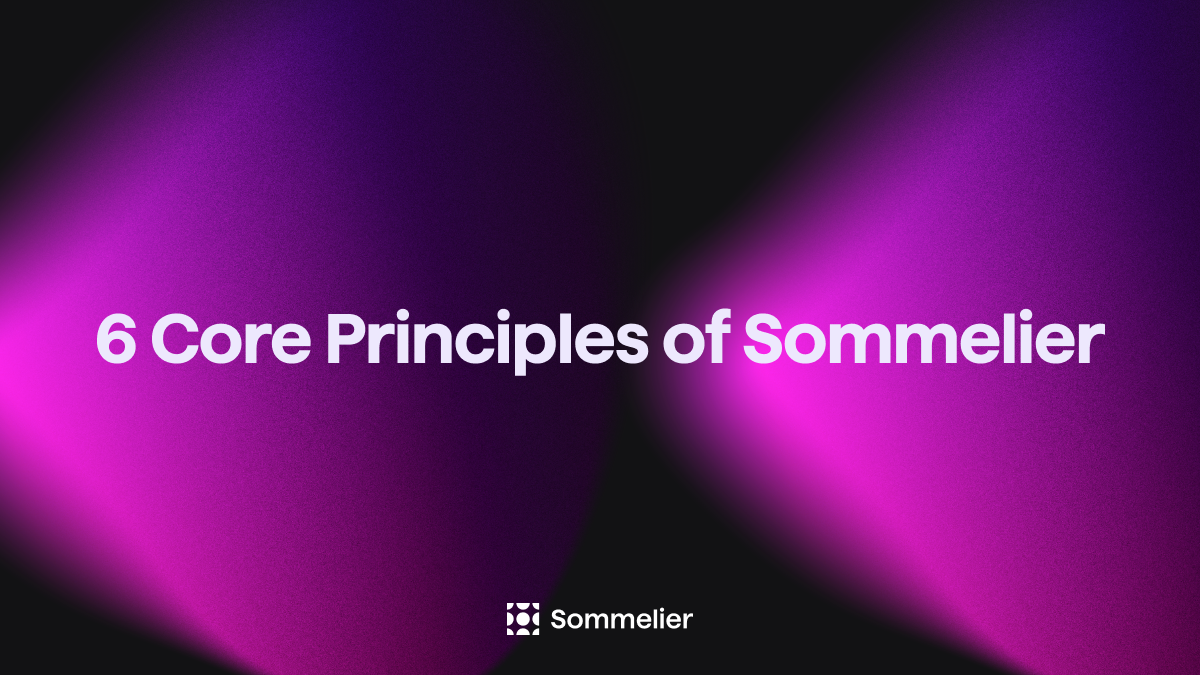
6 Core Principles of Sommelier
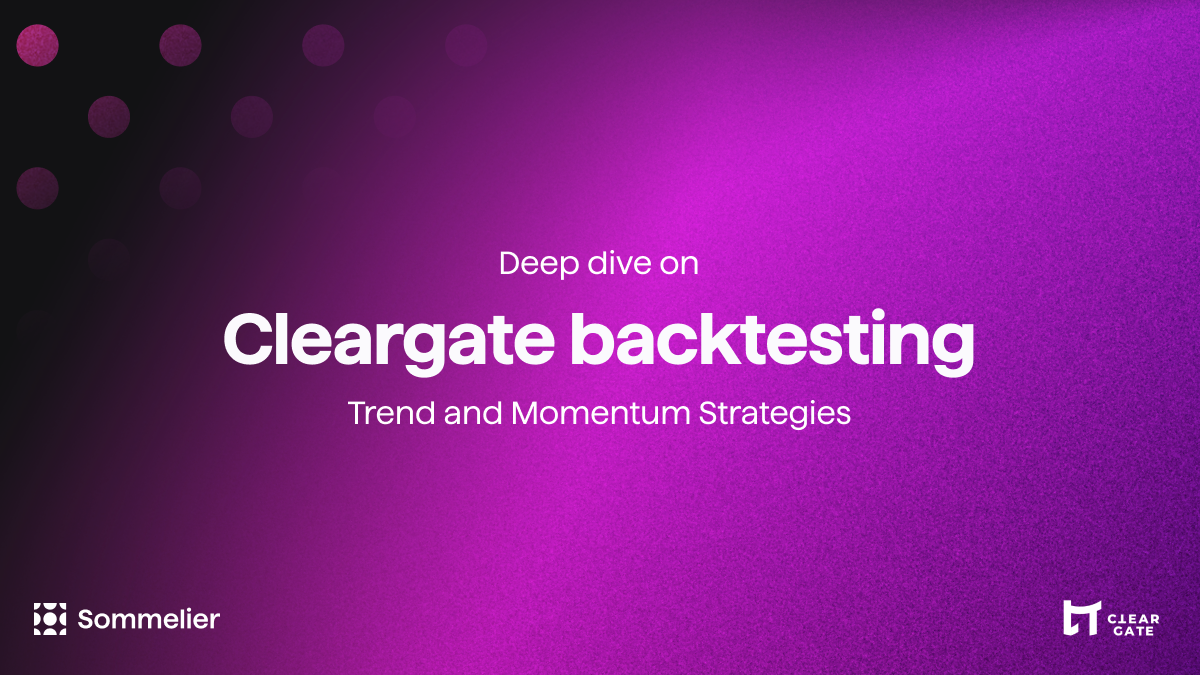
10/10/22 - Deep Dive on Cleargate Backtesting

Strategy Provider Spotlight: Seven Seas

Deep Dive on Trend and Momentum Strategies
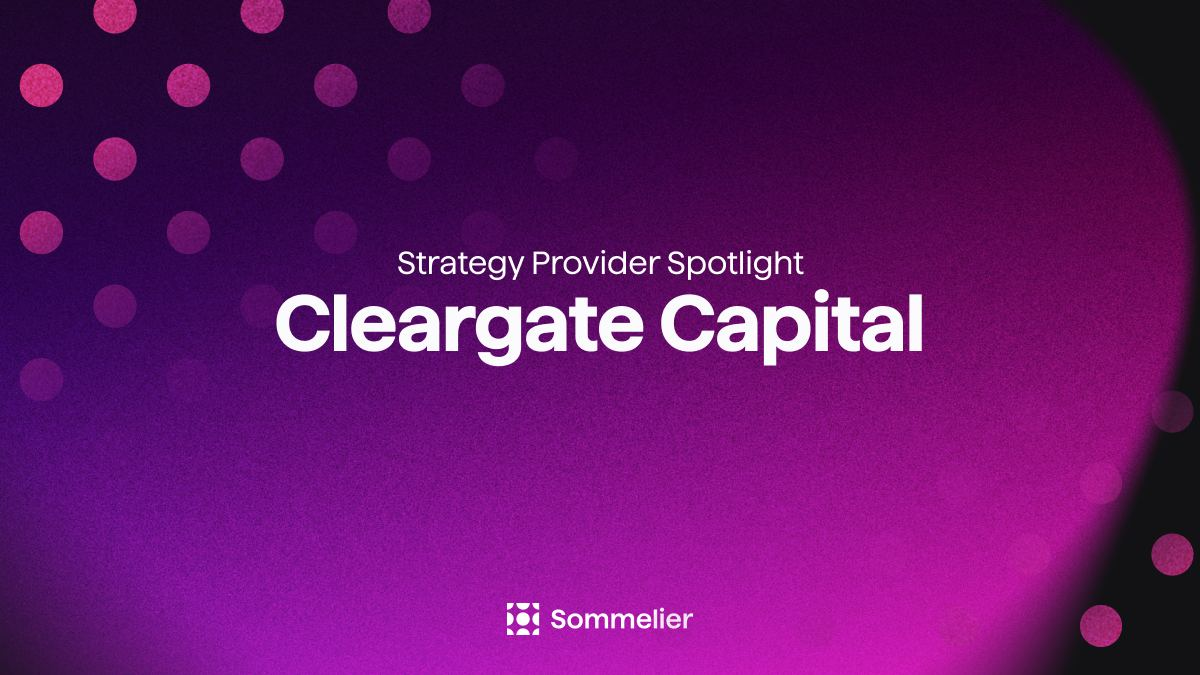
Strategy Provider Spotlight: ClearGate

Supporting Strategy Providers on Sommelier
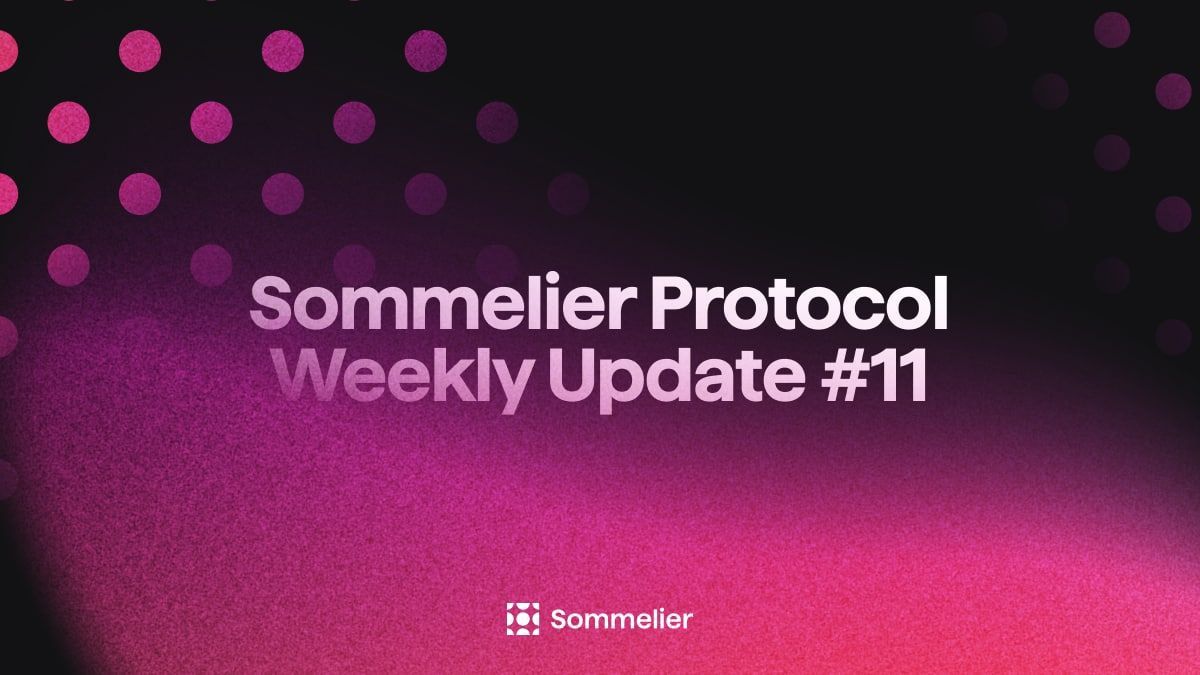
Sommelier Protocol Team Weekly Update #11
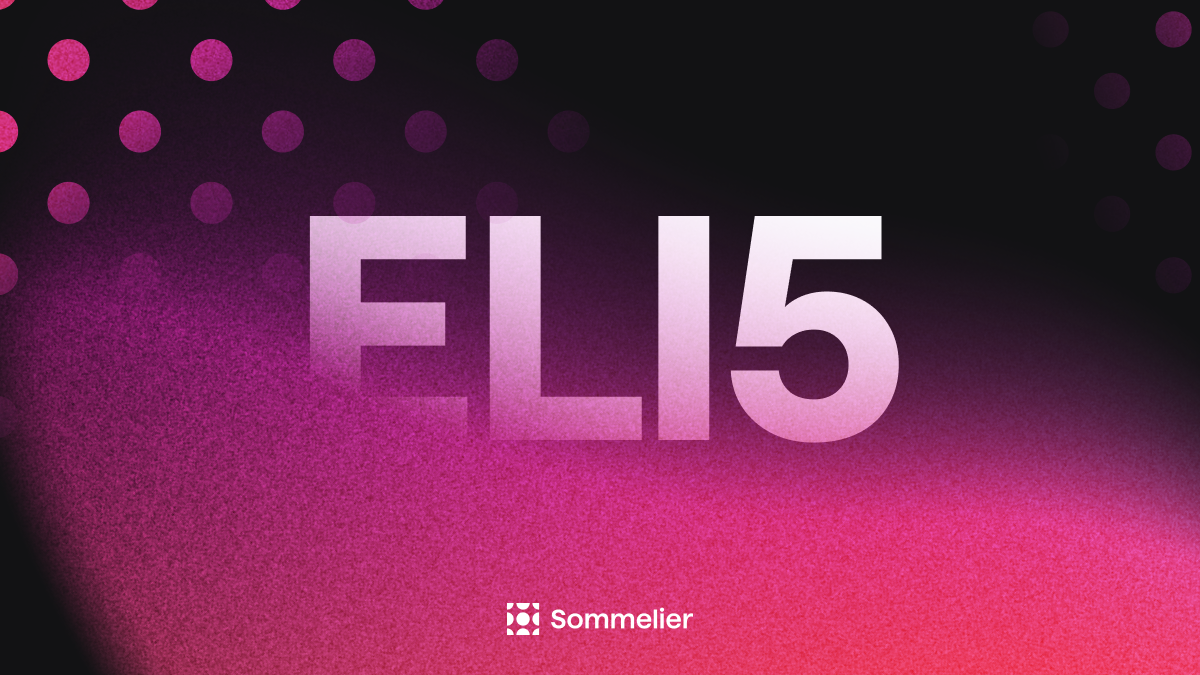
ELI-5 Explanation of the Data Science behind Sommelier’s First Aave Cellar
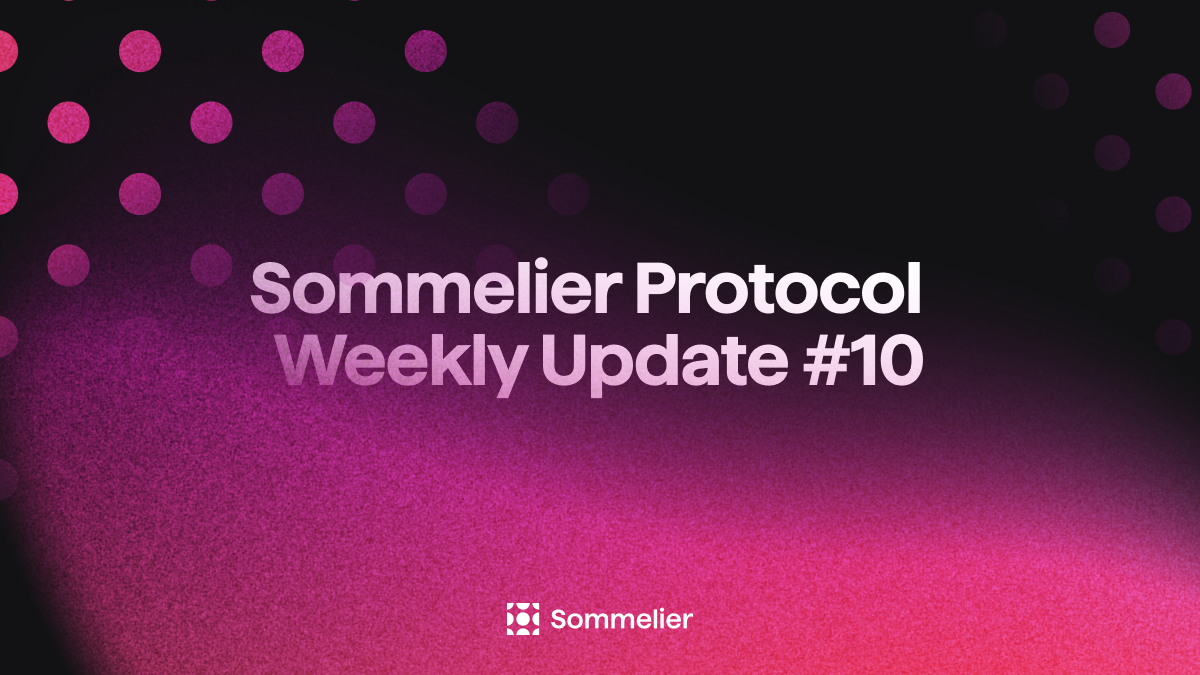
Sommelier Protocol Team Weekly Update #10
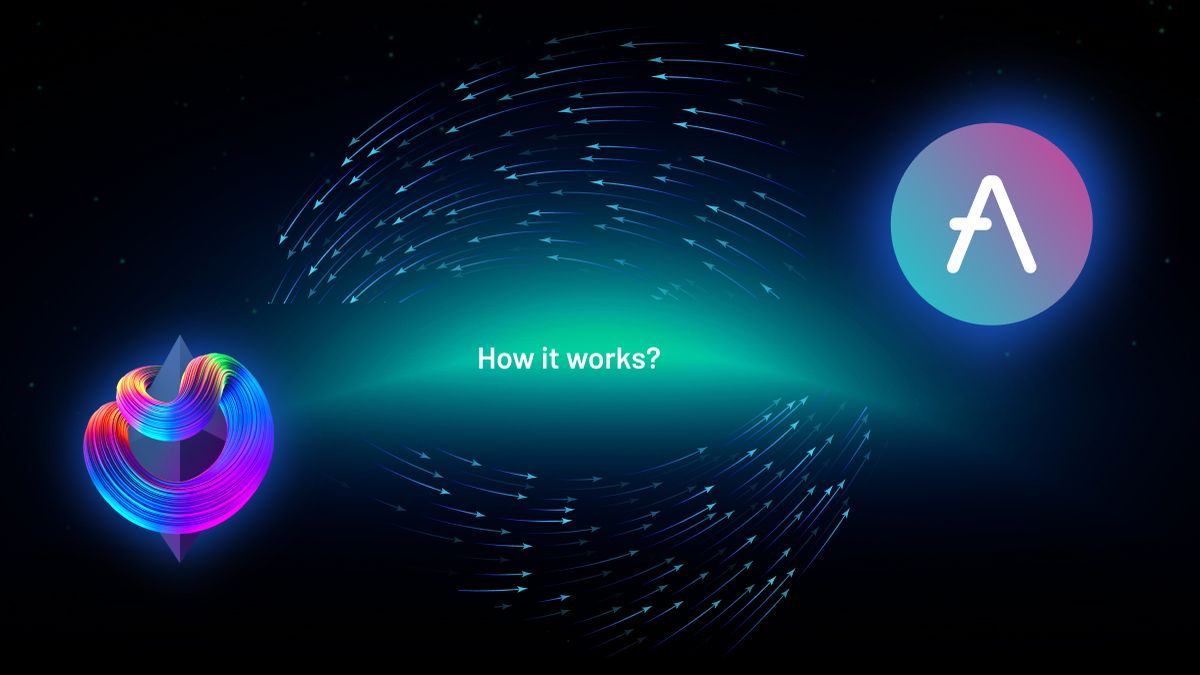
The Data Science Behind Sommelier’s First Aave Cellar
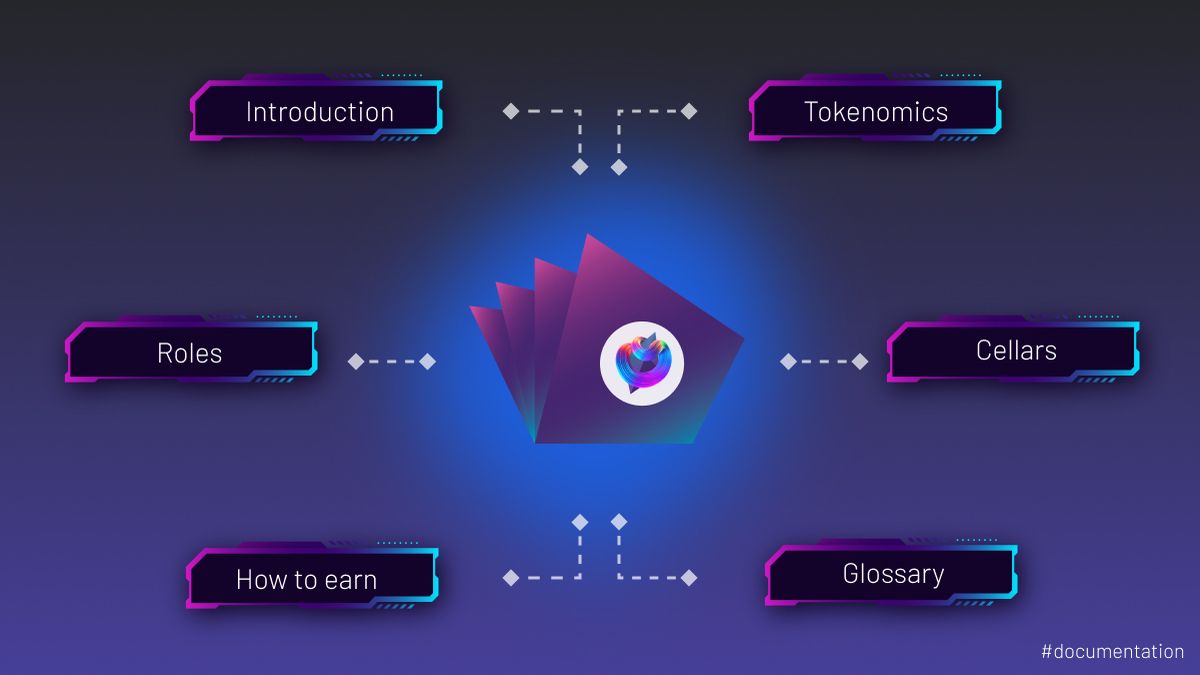
Sommelier Protocol Design Documents
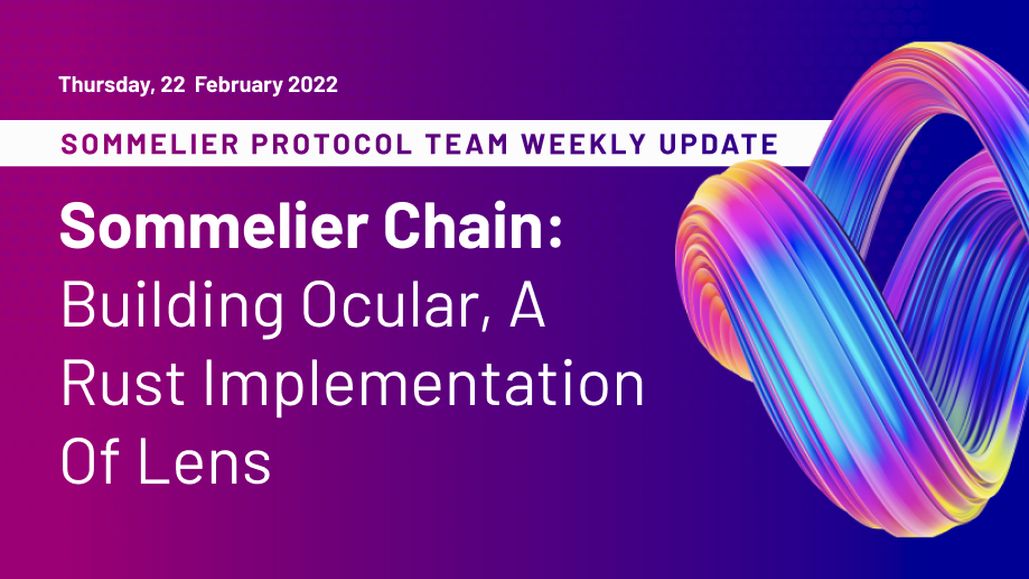
Sommelier Protocol Team Weekly Update #9
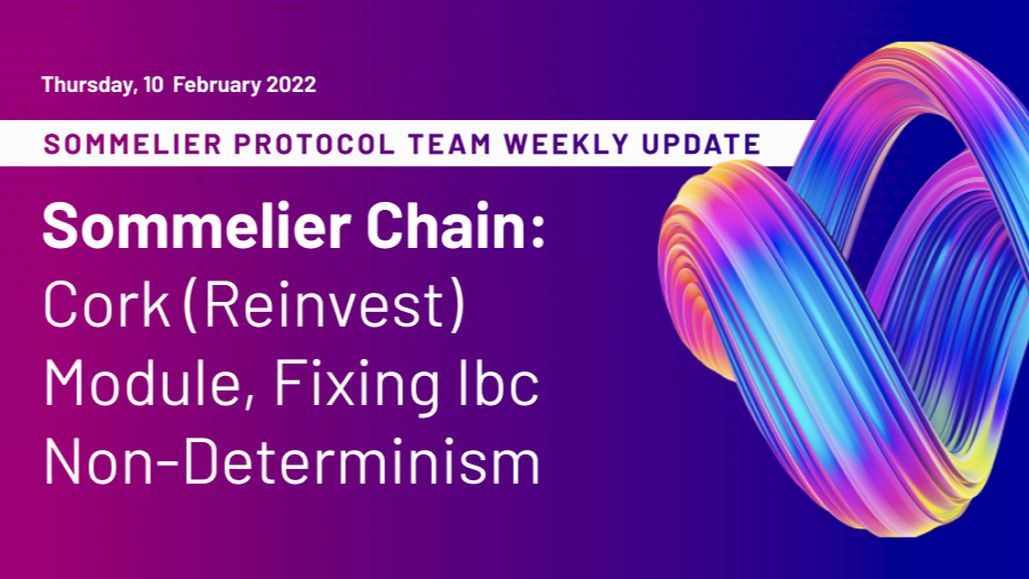
Sommelier Protocol Team Weekly Update #8
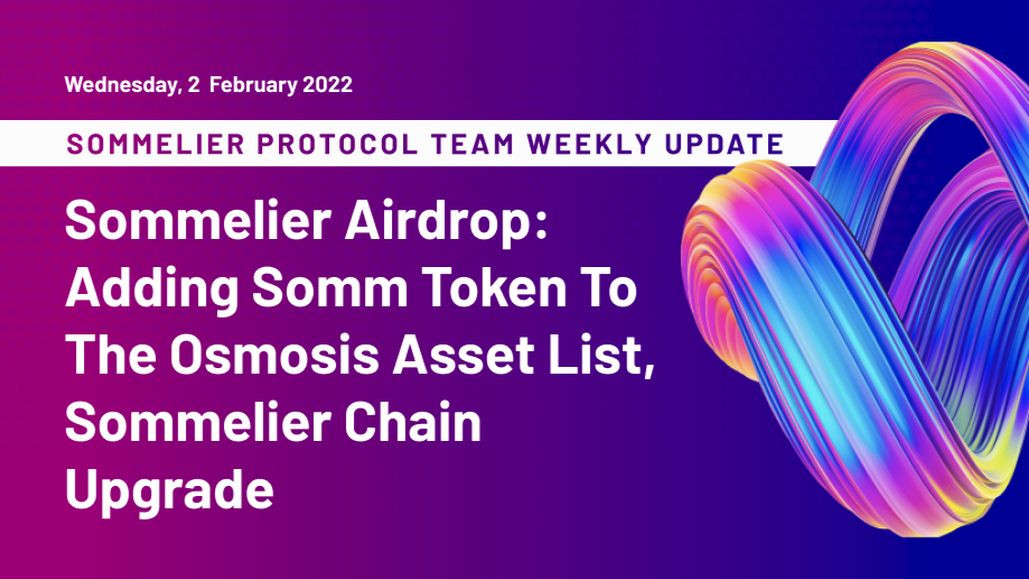
Sommelier Protocol Team Weekly Update #7

Twitter Spaces With Sommelier: How to Launch a Cellar on Sommelier

Twitter Spaces With Sommelier: Protocol Upgrade and Community Update
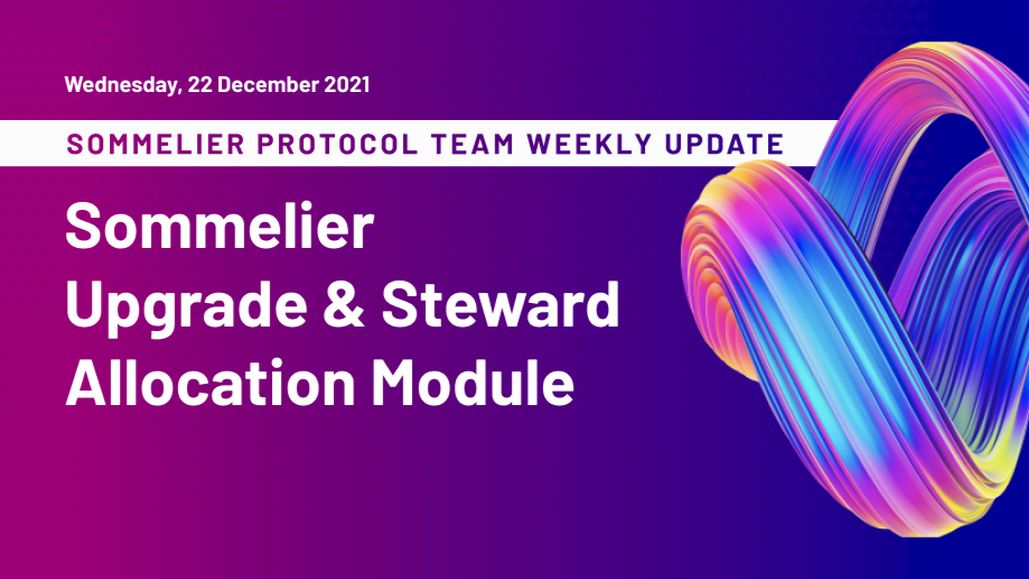
Sommelier Protocol Team Weekly Update #4
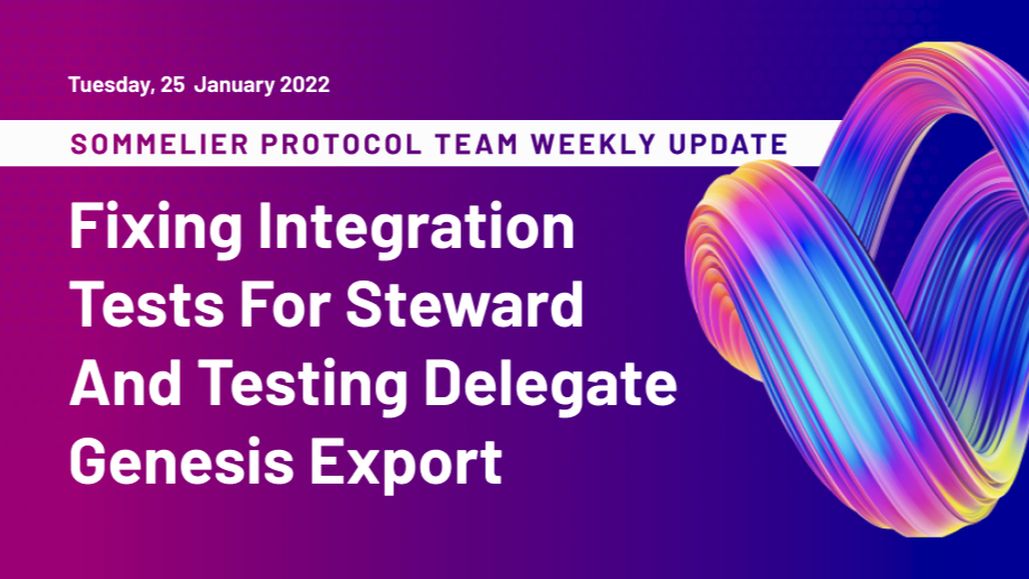
Sommelier Protocol Team Weekly Update #6

Twitter Spaces With Sommelier: SOMM Airdrop Proposal Data Analysis
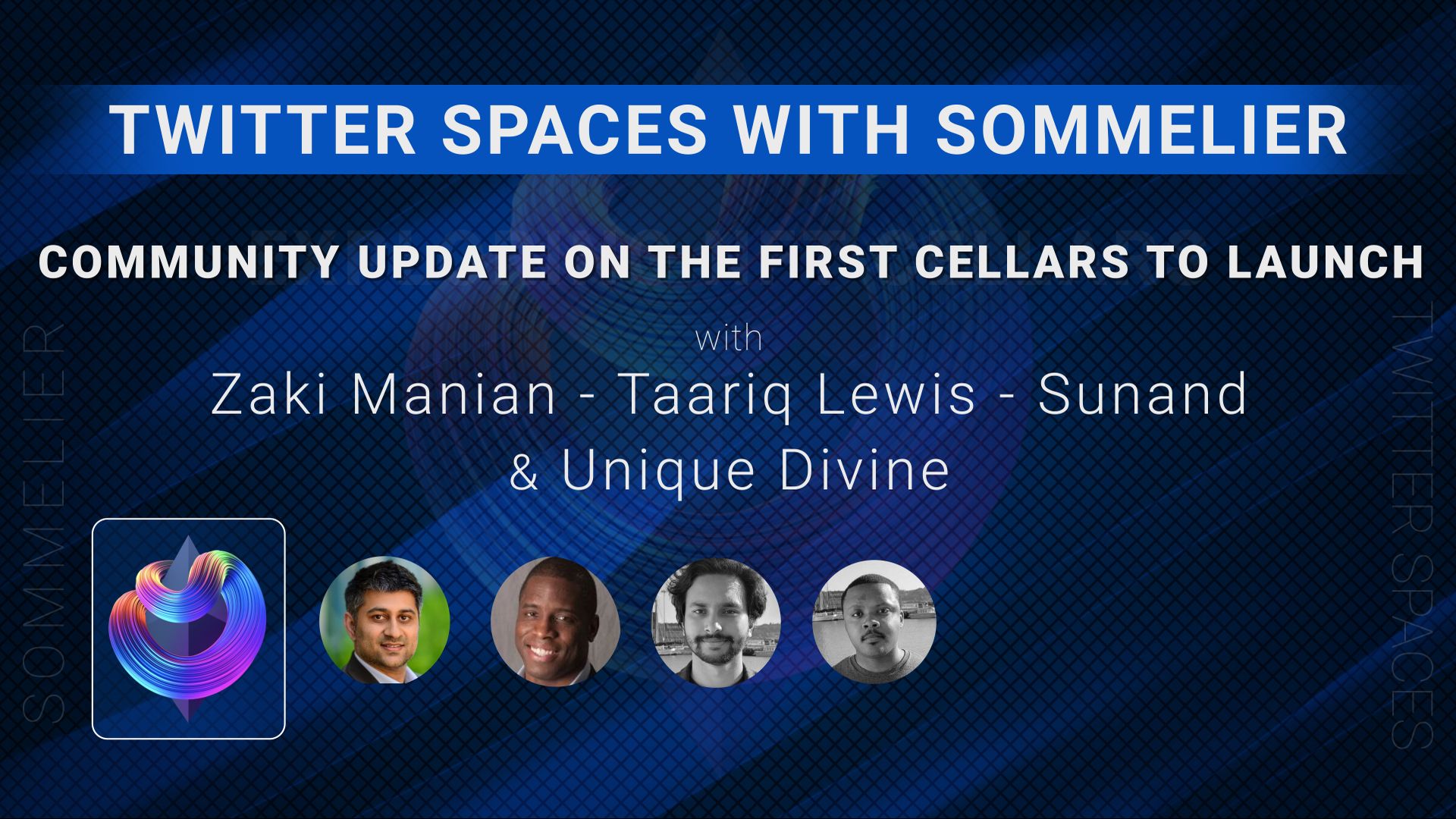
Twitter Spaces With Sommelier: Community Update on the First Cellars to Launch
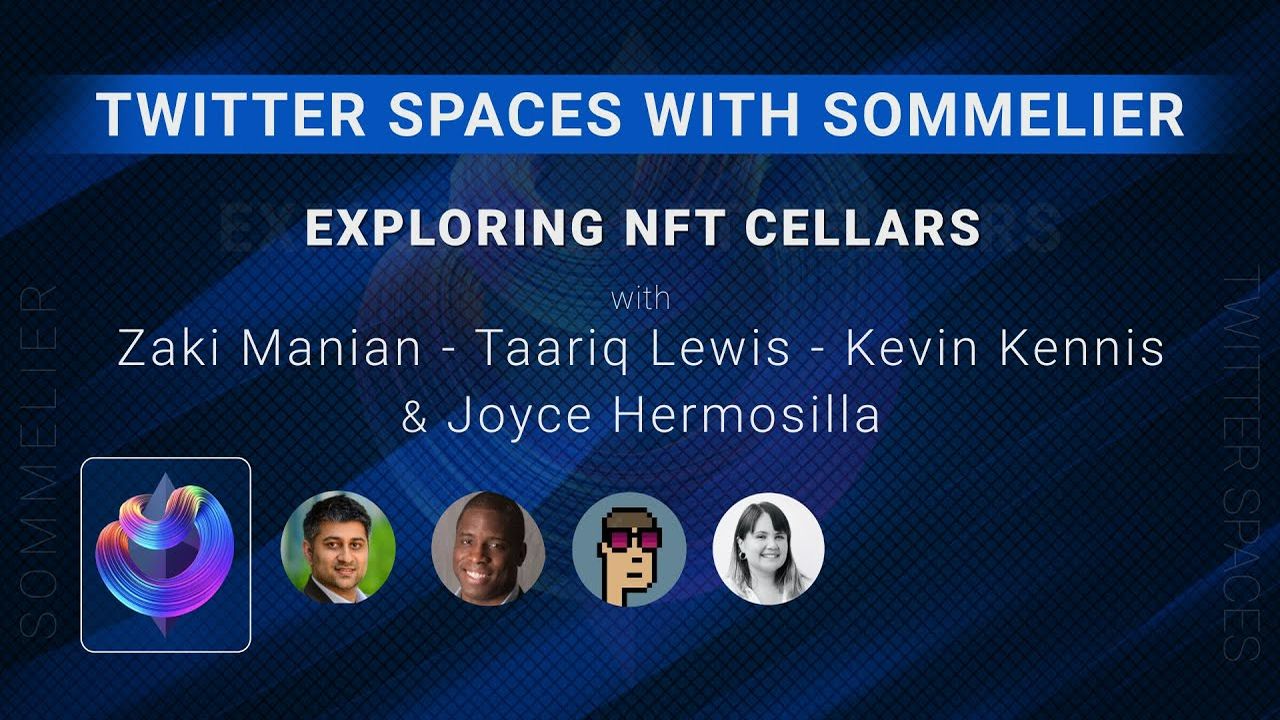
Twitter Spaces With Sommelier: Exploring NFT Cellars
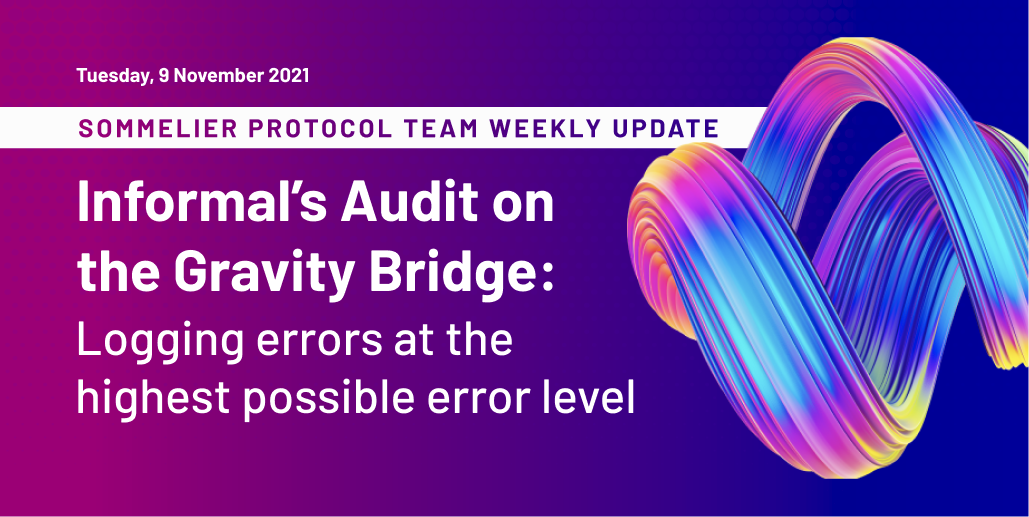
Sommelier Protocol Team Weekly Update #1
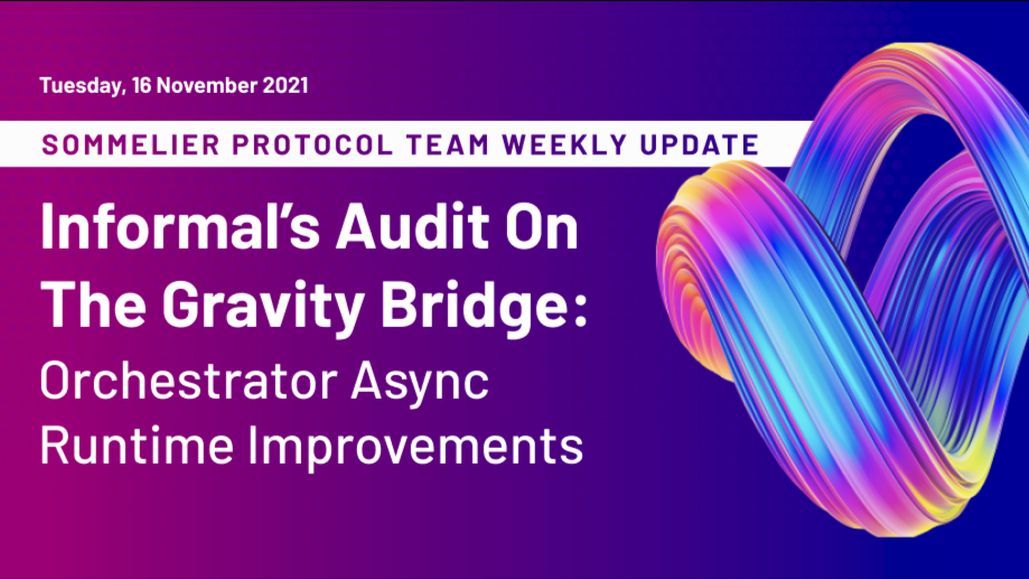
Sommelier Protocol Team Weekly Update #2
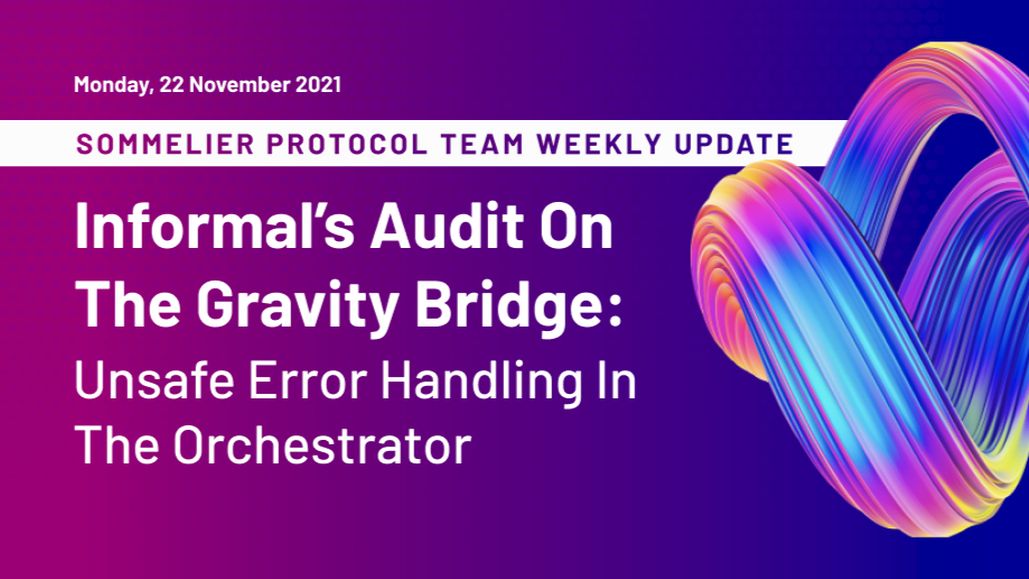
Sommelier Protocol Team Weekly Update #3

Three Things You Need to Know About Sommelier Governance This Week
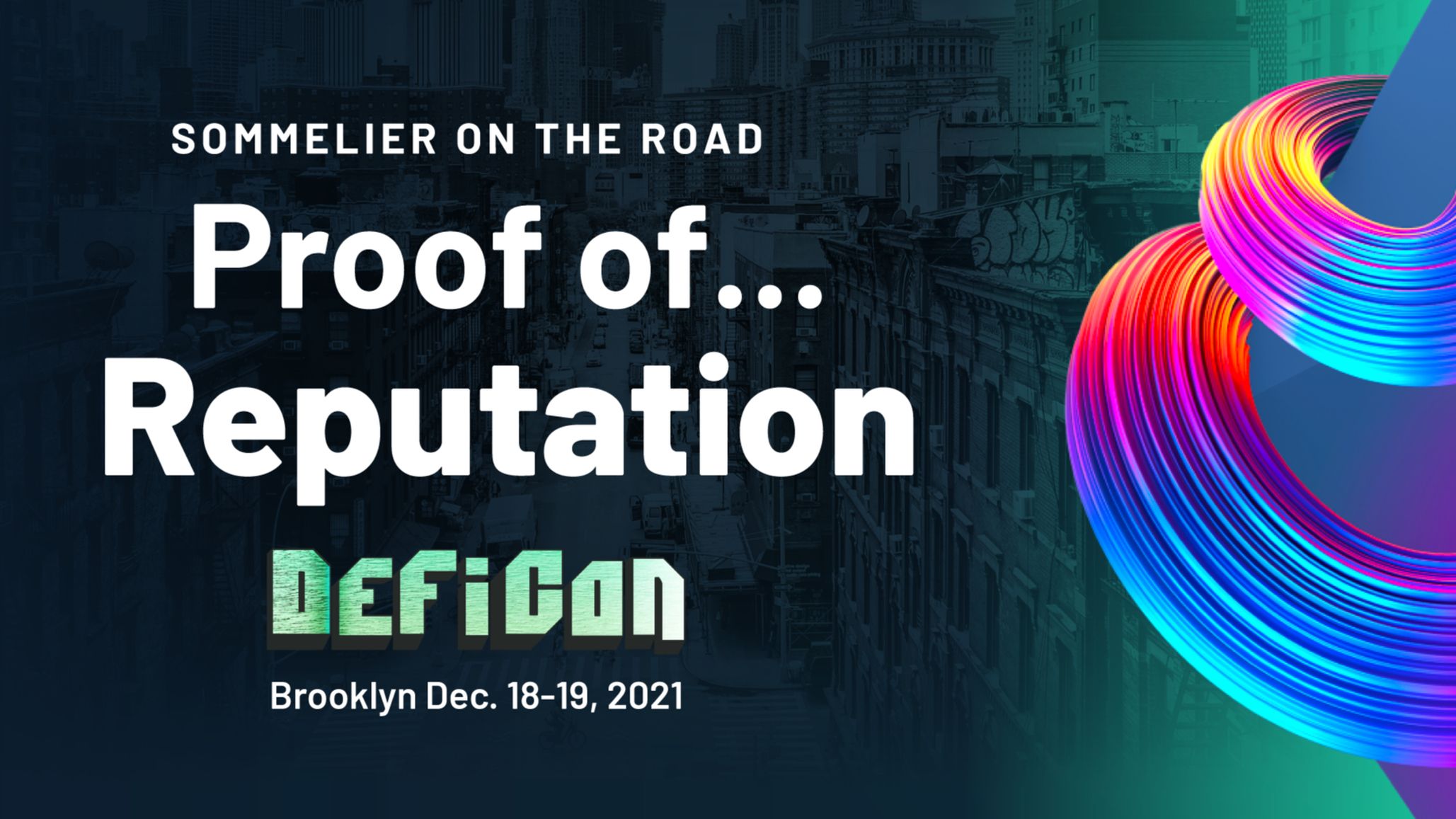
Sommelier On the Road: PROOF OF…REPUTATION
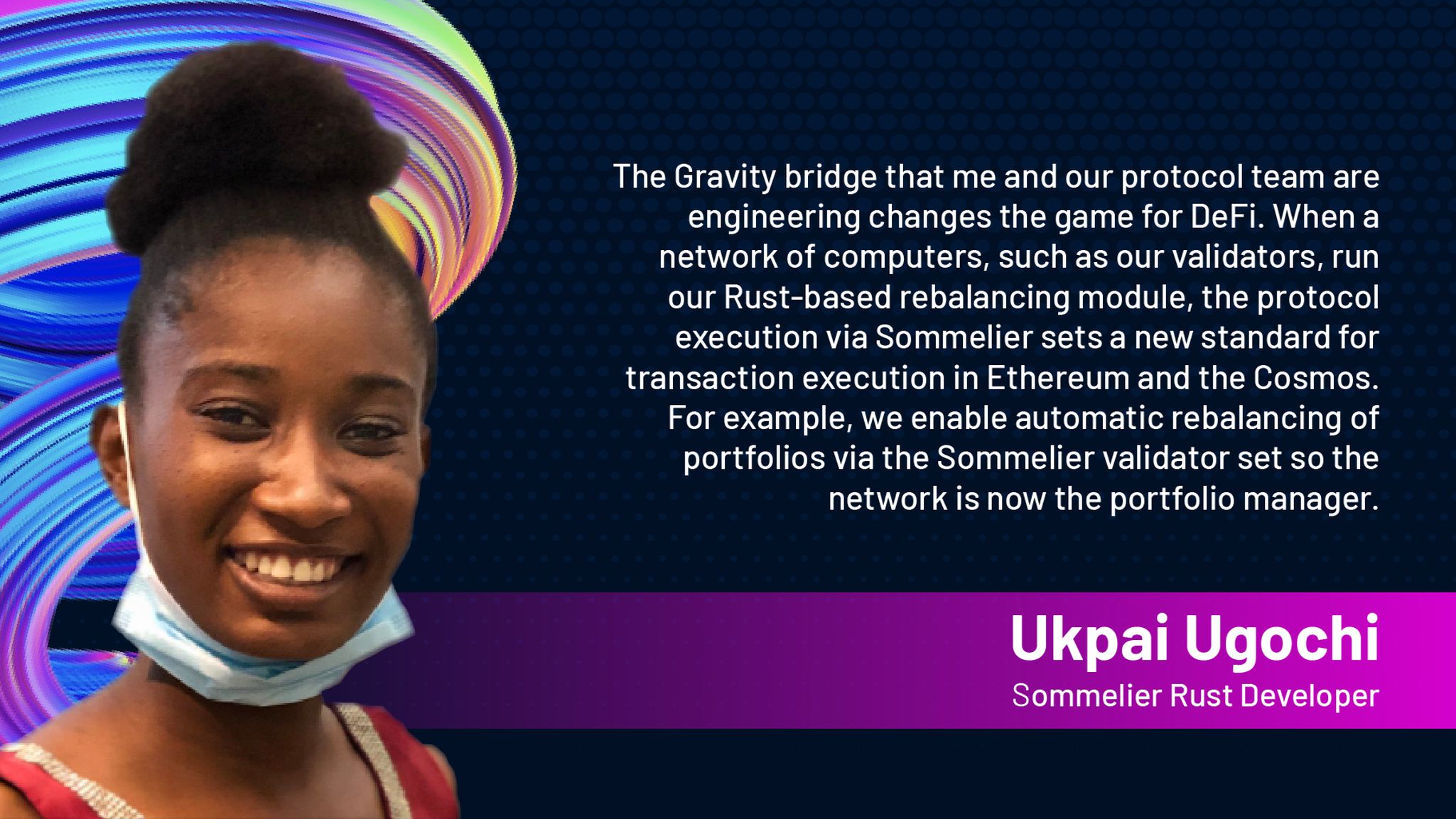
Introducing Ukpai Ugochi - Working on The Sommelier Cellars Rebalancer

Sommelier Announces 23MM Series A Mainnet Round to launch Automated DeFi via the Cosmos
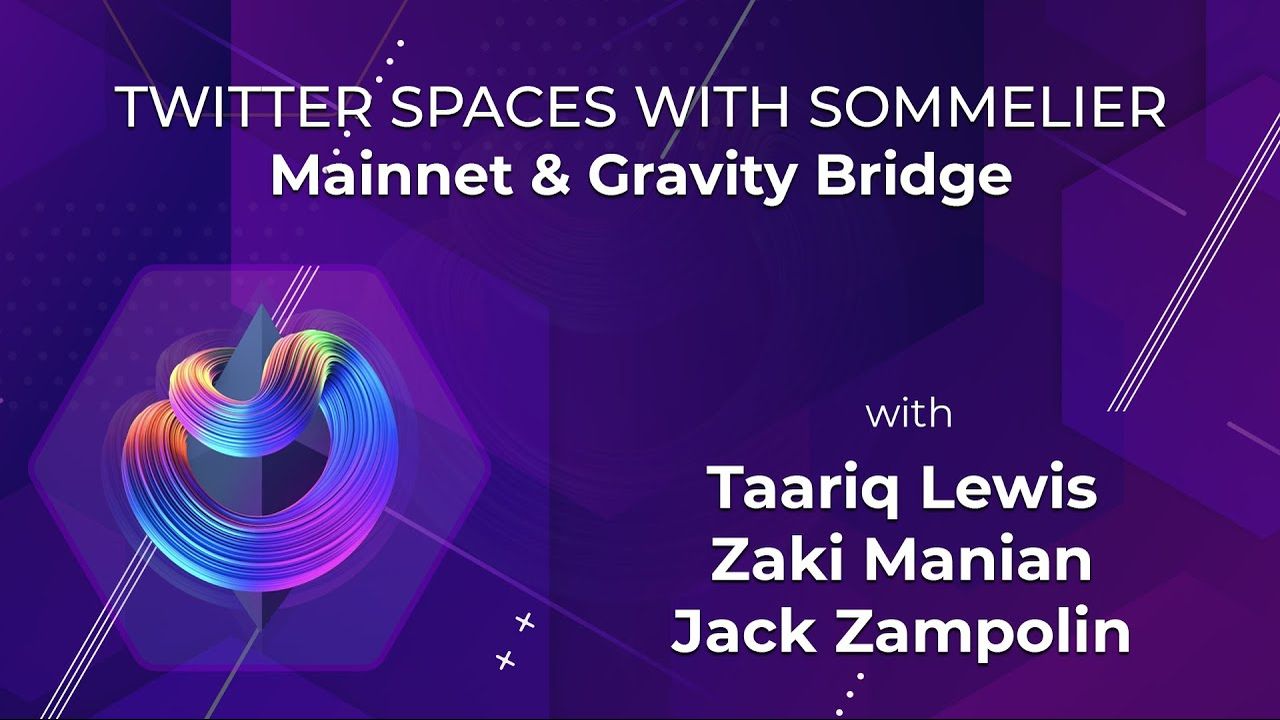
Twitter Spaces With Sommelier: Mainnet Launch & Gravity Bridge
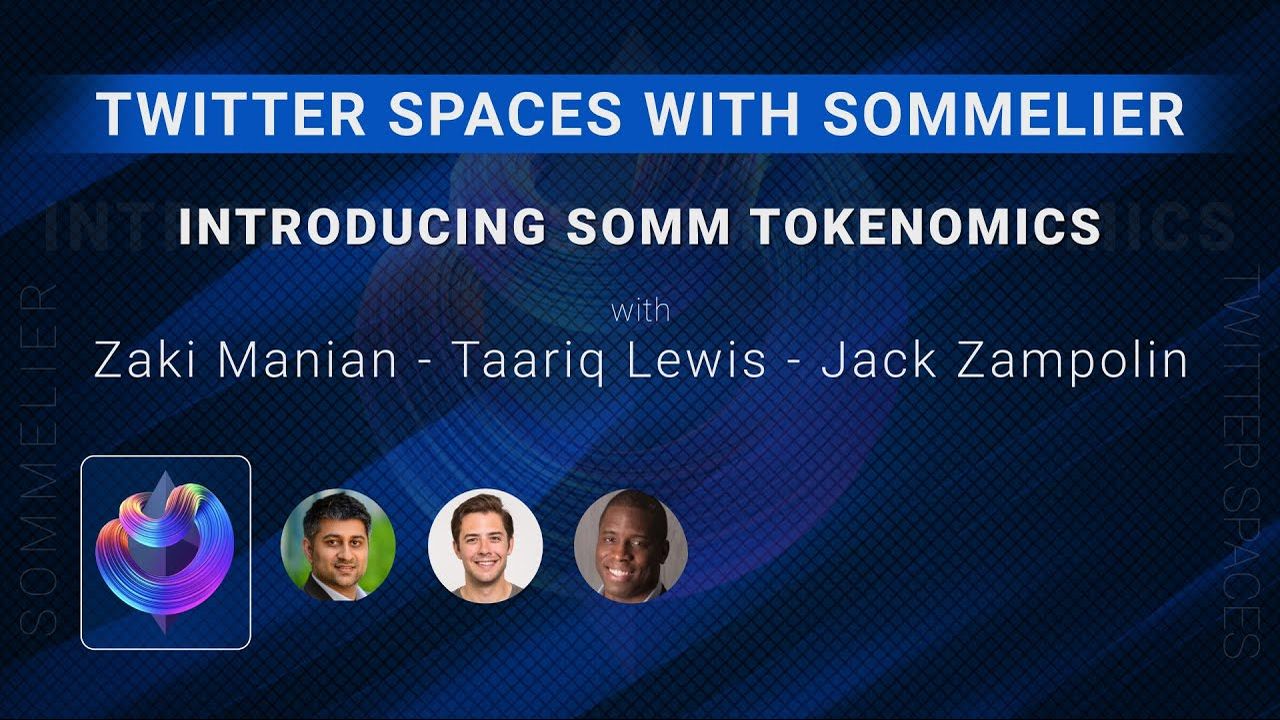
Twitter Spaces With Sommelier: Introducing SOMM Tokenomics
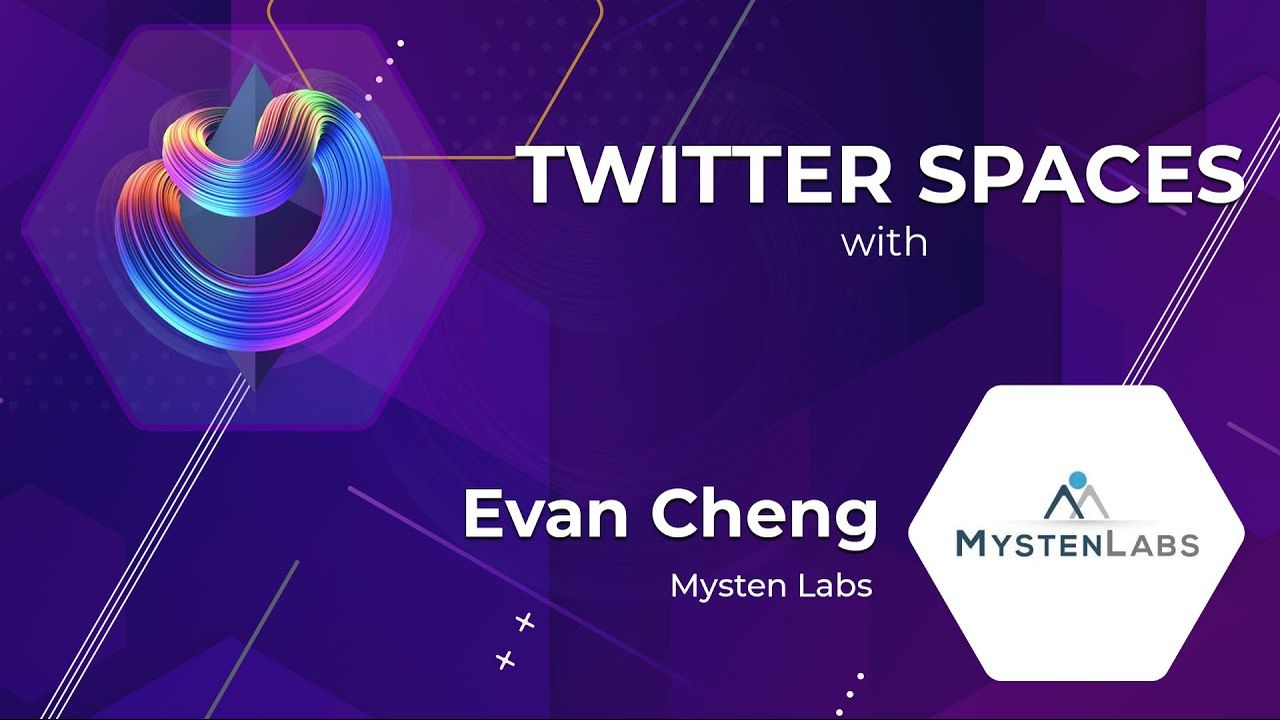
Twitter Spaces With Sommelier: Mysten Labs AMA With Evan Cheng

Introducing SIPS and Sommelier’s Governance Structure
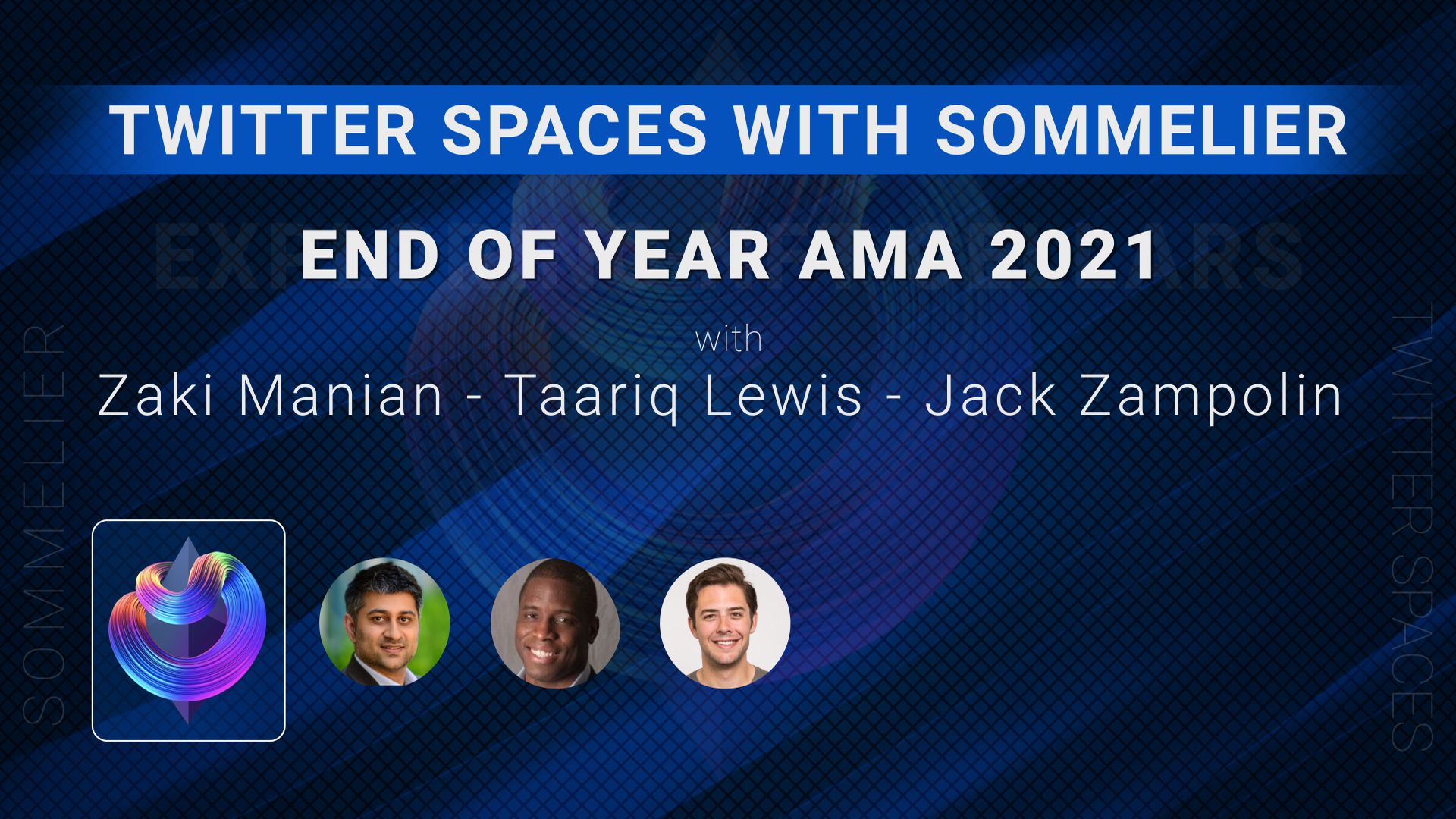
Twitter Spaces With Sommelier: End of Year AMA 2021
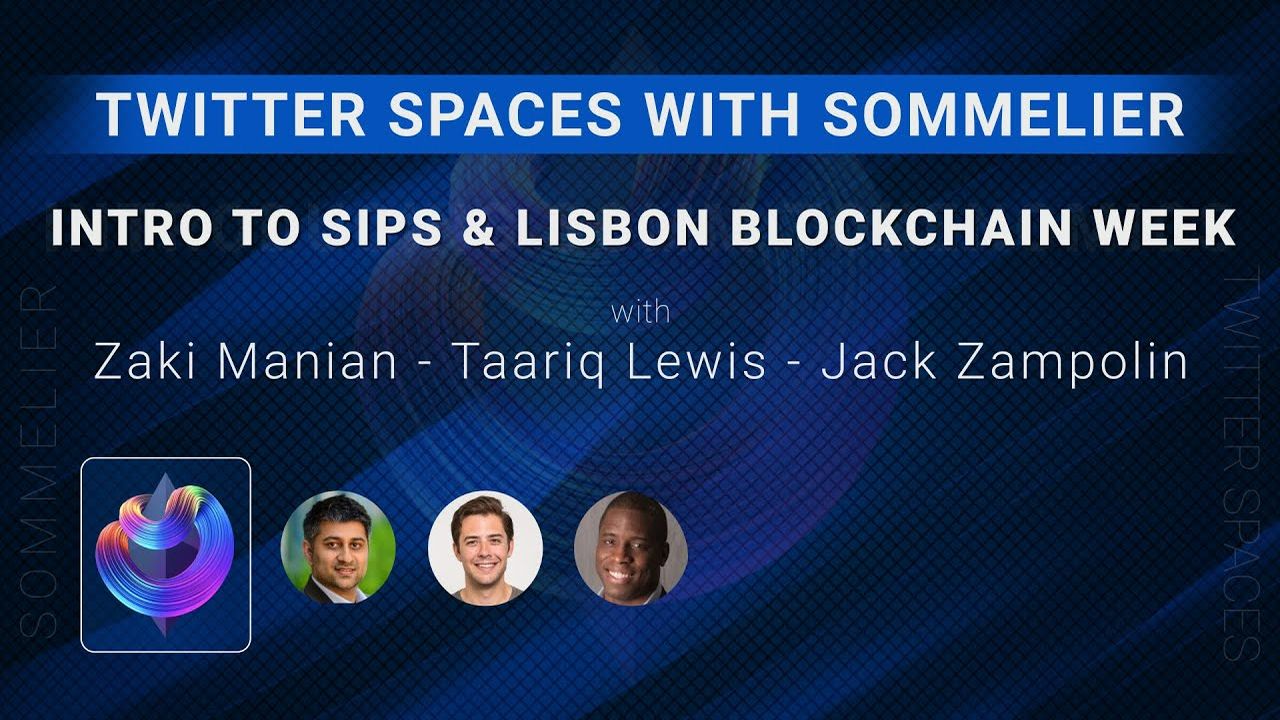
Twitter Spaces With Sommelier: Intro to SIPS & Lisbon Blockchain Week
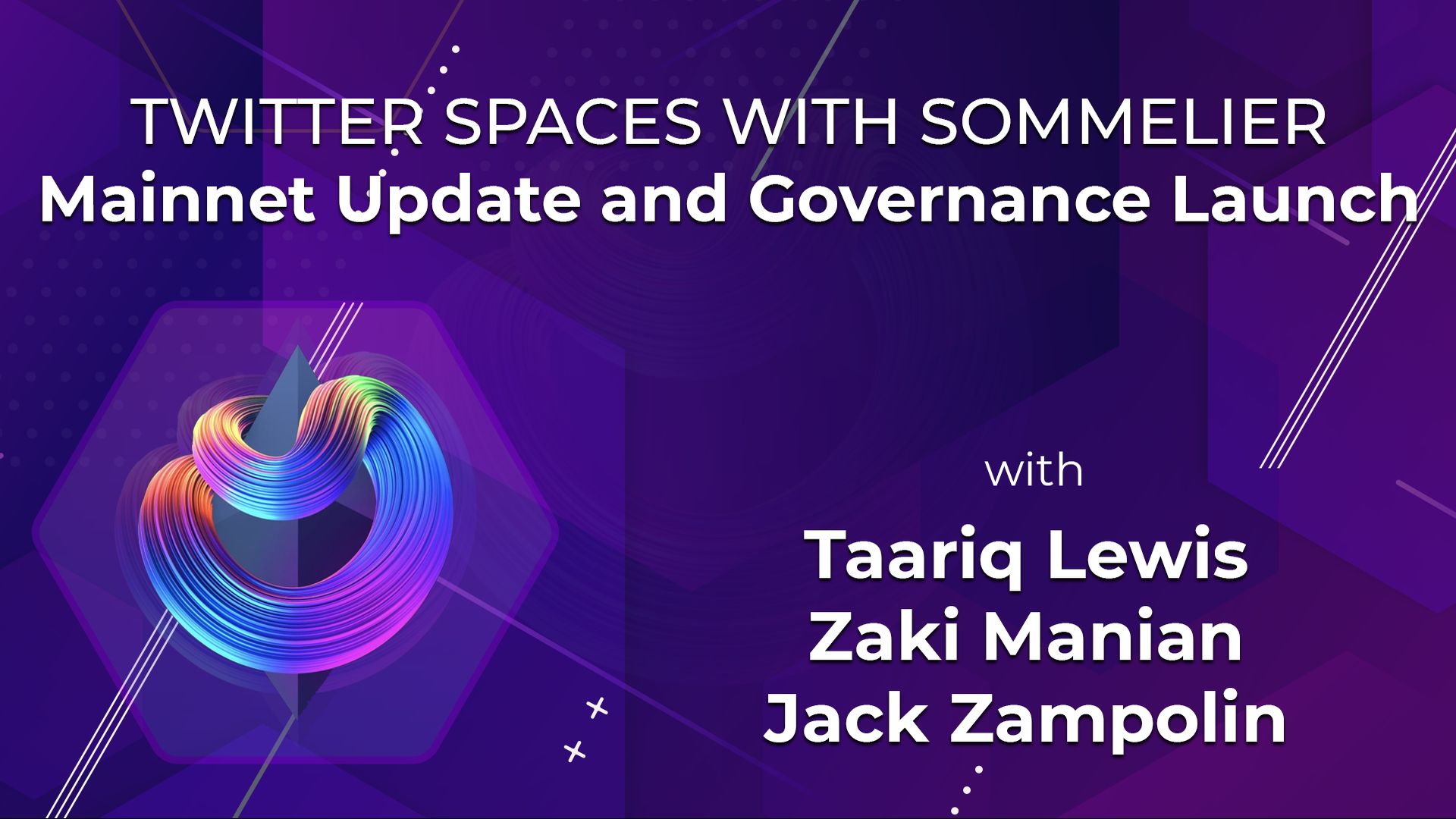
Twitter Spaces With the Sommeliers: Mainnet Update and Governance Launch
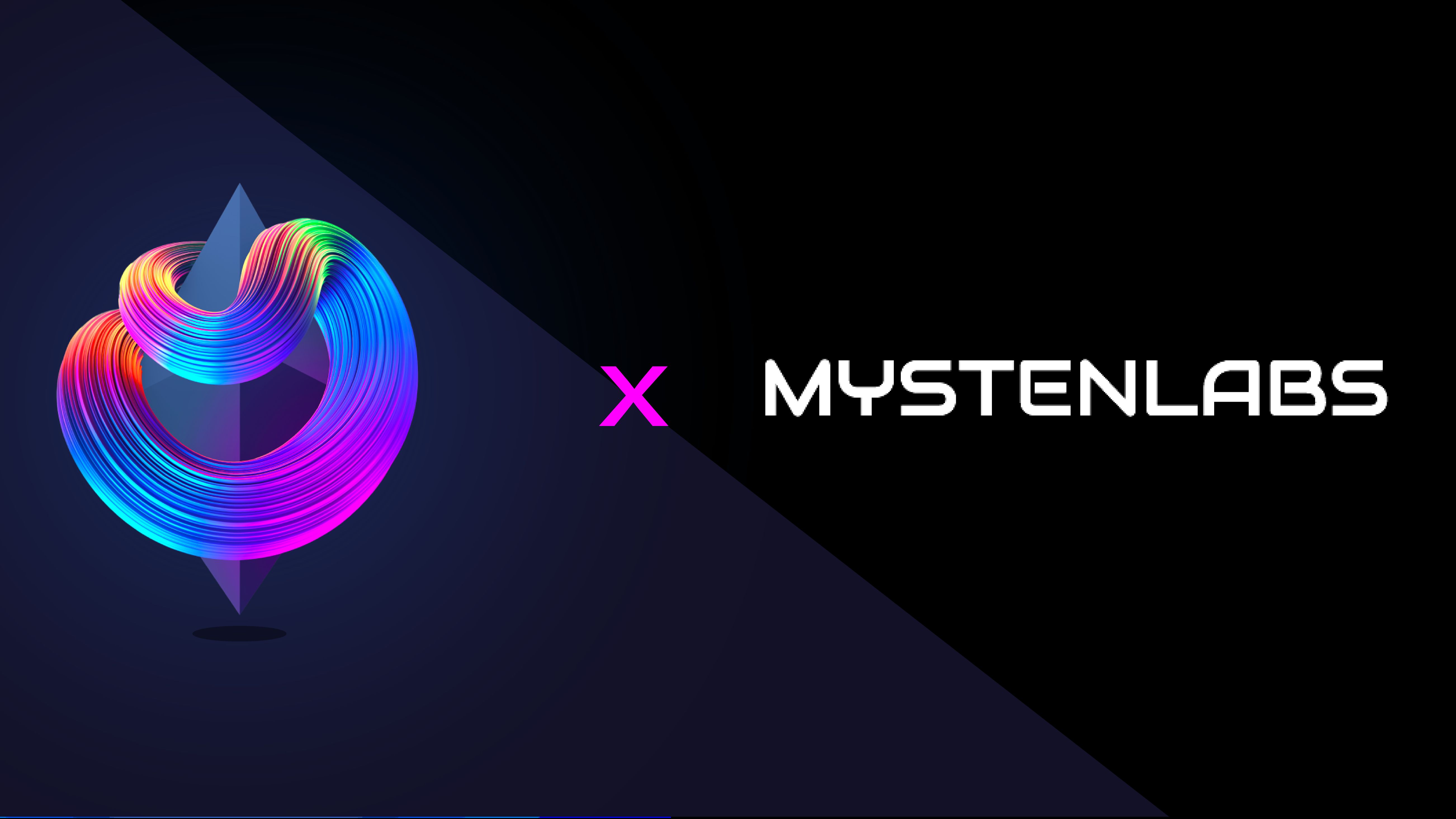
Sommelier Partners With Mysten Labs to Make Sommelier and All Cosmos Blockchains the Fastest Protocols on the Planet

Twitter Spaces With the Sommeliers: Sushi AMA With Joseph Delong
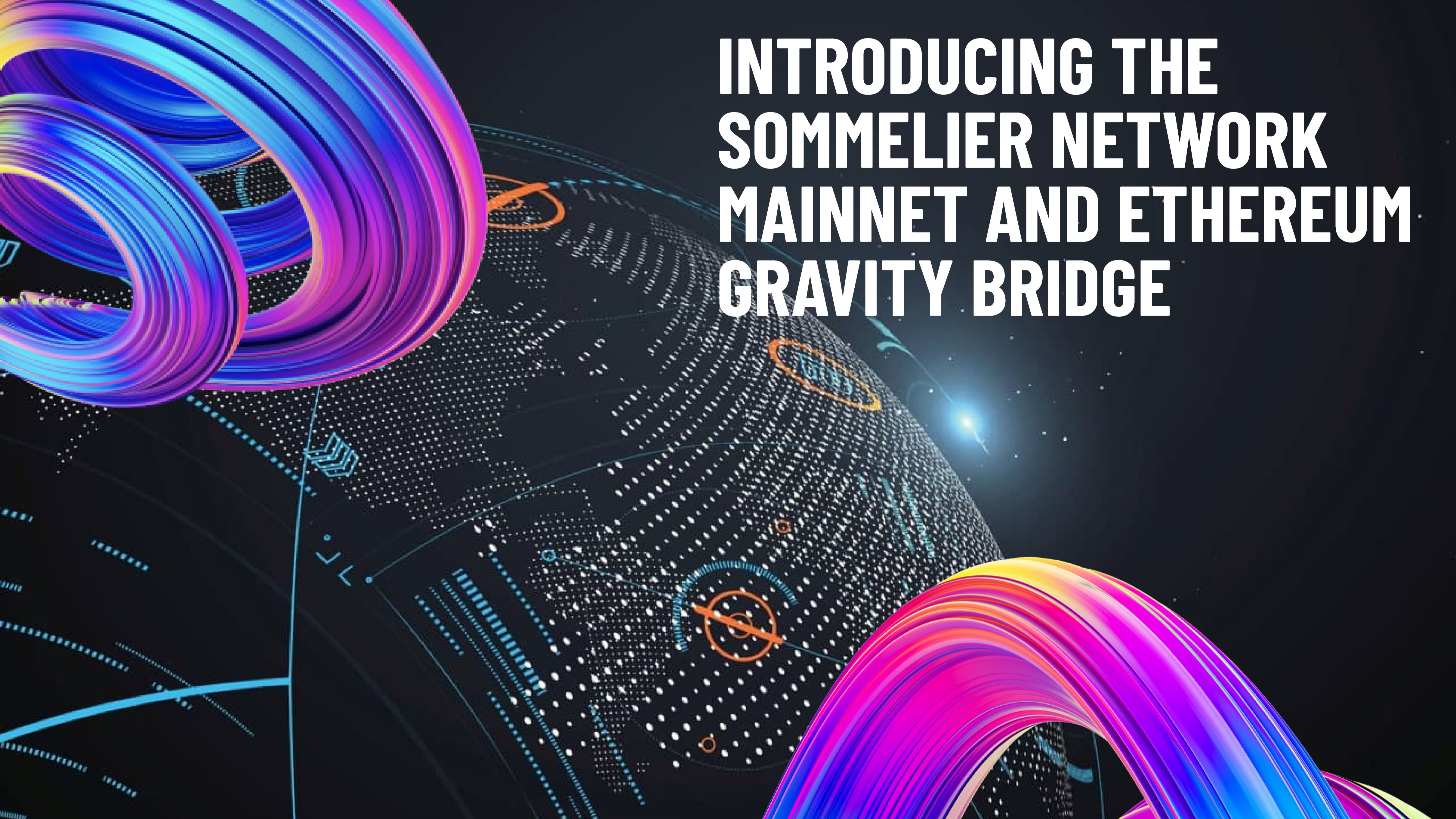
Introducing the Sommelier Network Mainnet and Ethereum Gravity Bridge
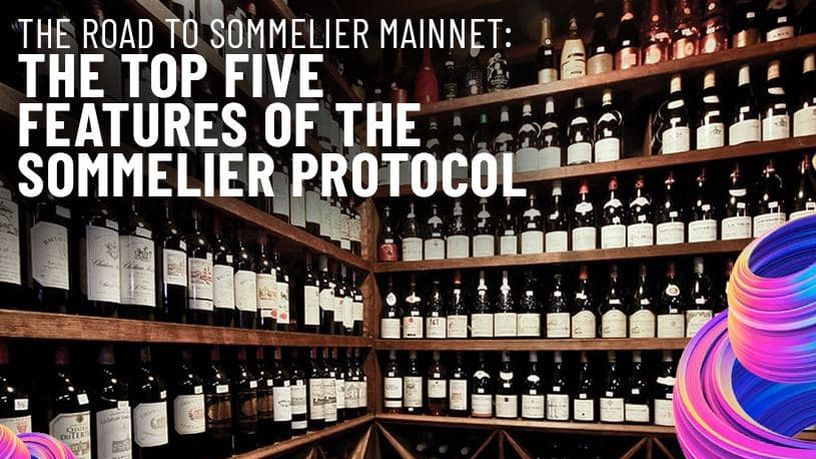
The Top Five Features of the Sommelier Protocol
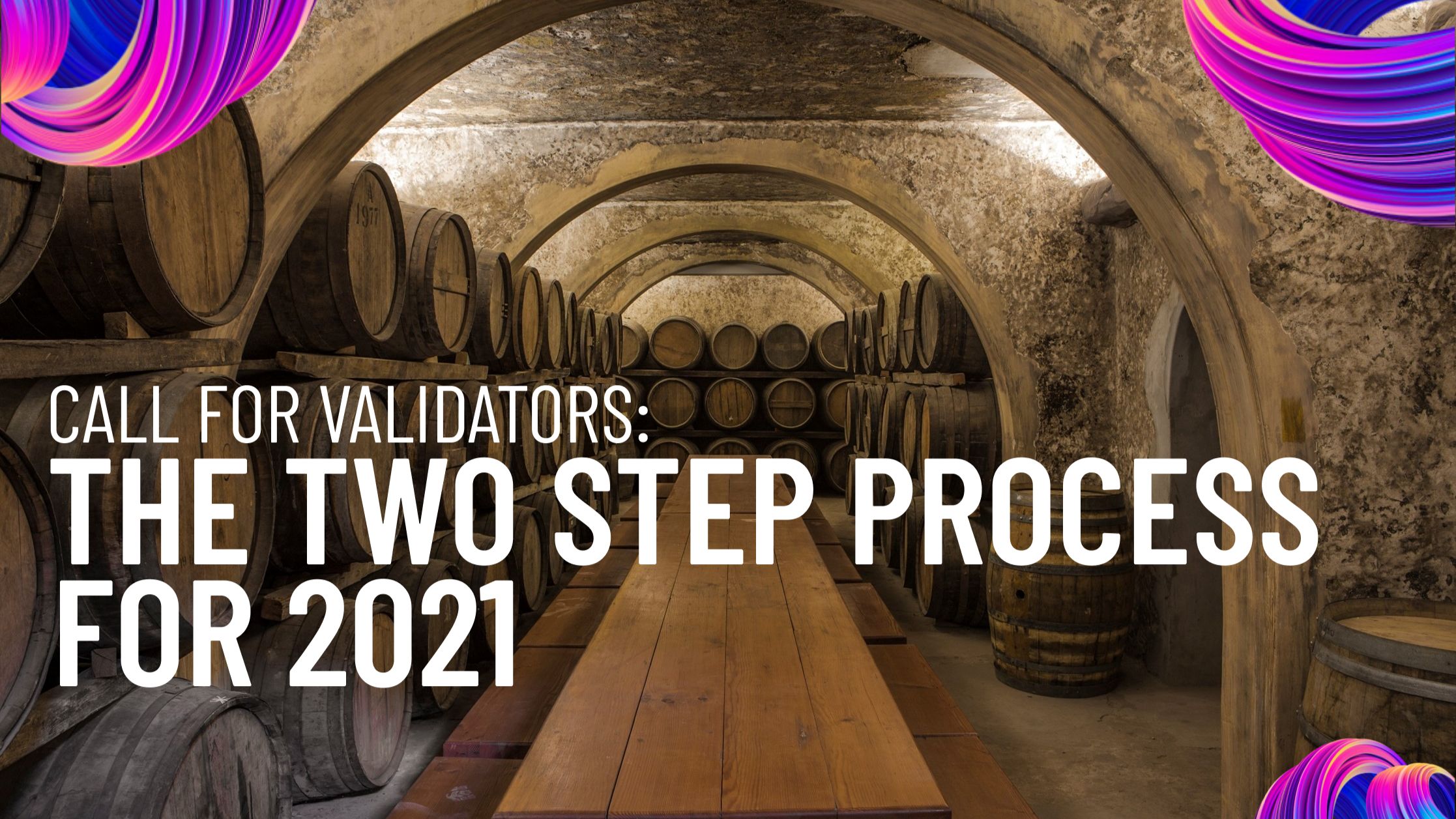
Call for Validators: The Two Step Process for 2021
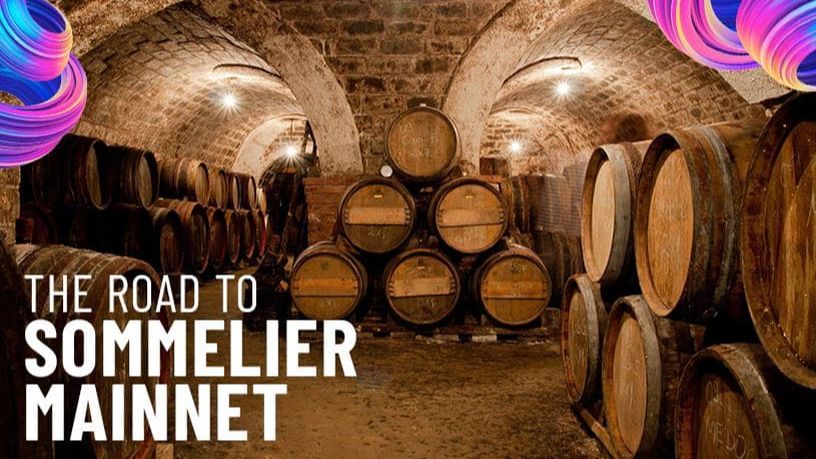
Two New Features Launched to Test Liquidity Management on Uniswap v3

Uniswap v3 Remove Smart Contract Incident Post Mortem for Sommelier
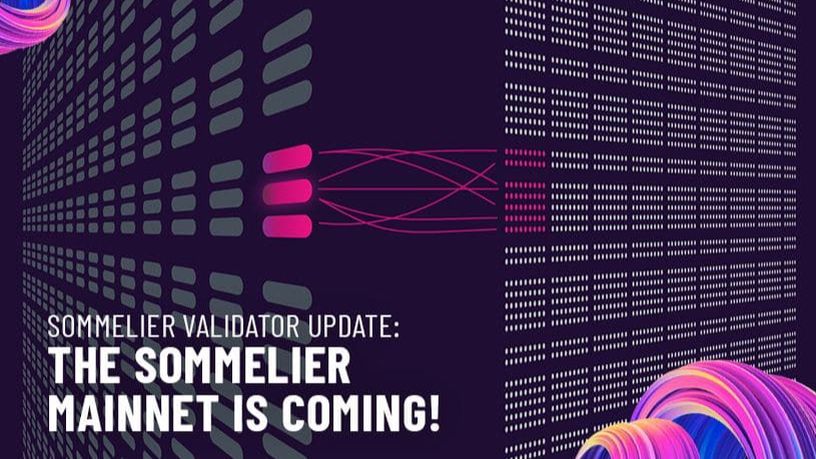
Call for Validators: Road to Sommelier Mainnet
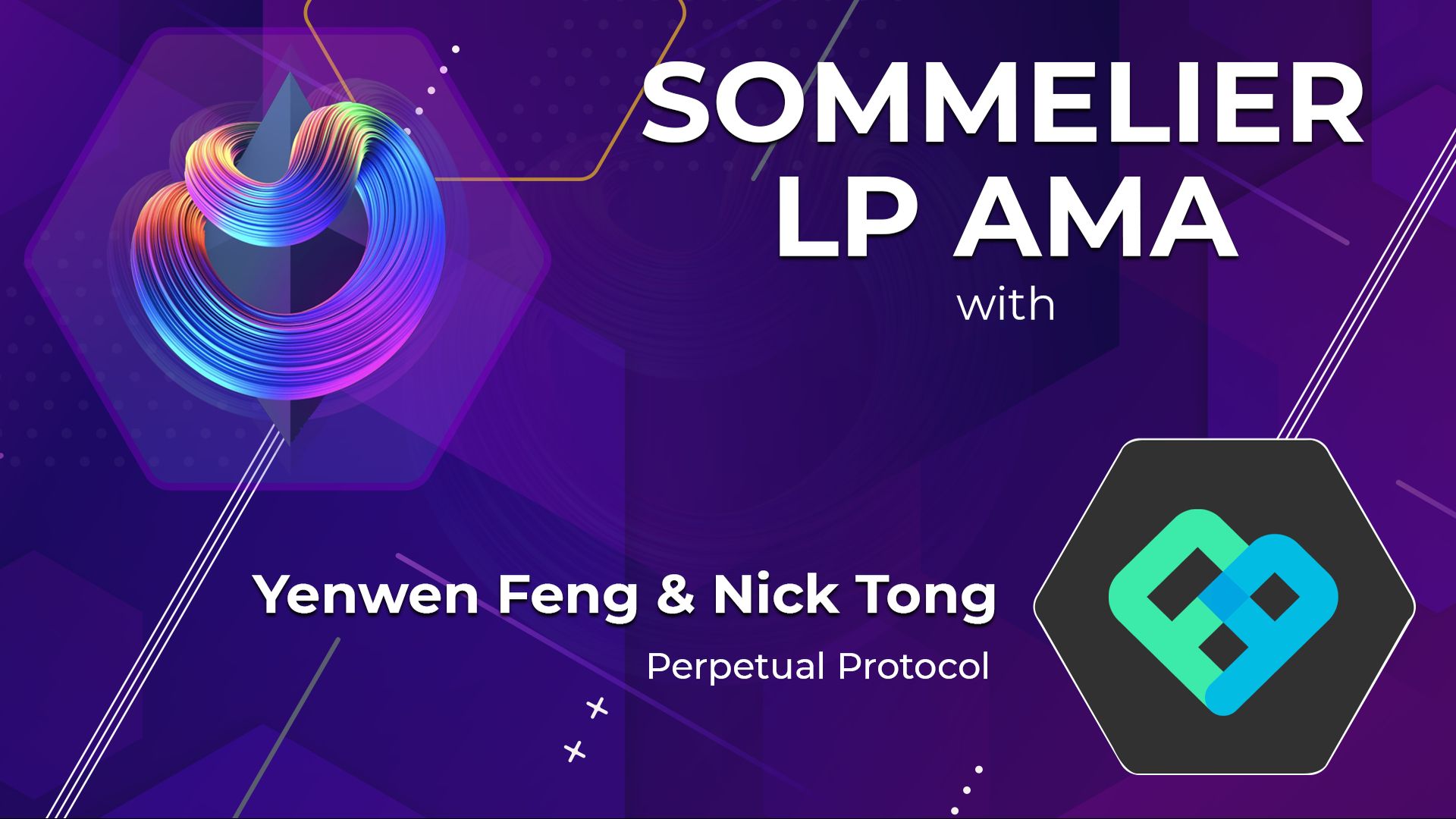
Sommelier Liquidity AMA With Yenwen and Nick From Perpetual Protocol
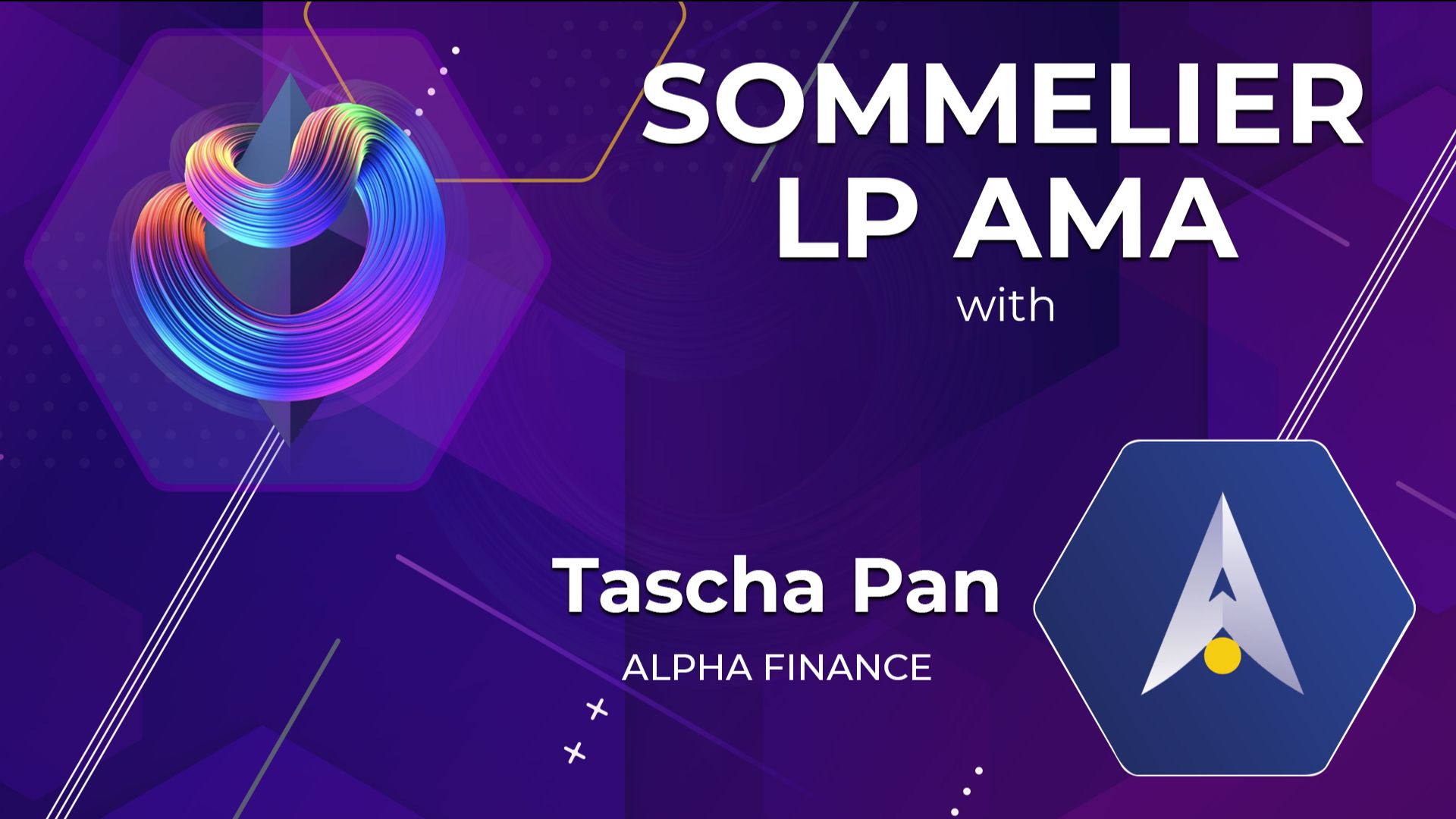
Sommelier Liquidity AMA With Tascha Pan From Alpha Finance
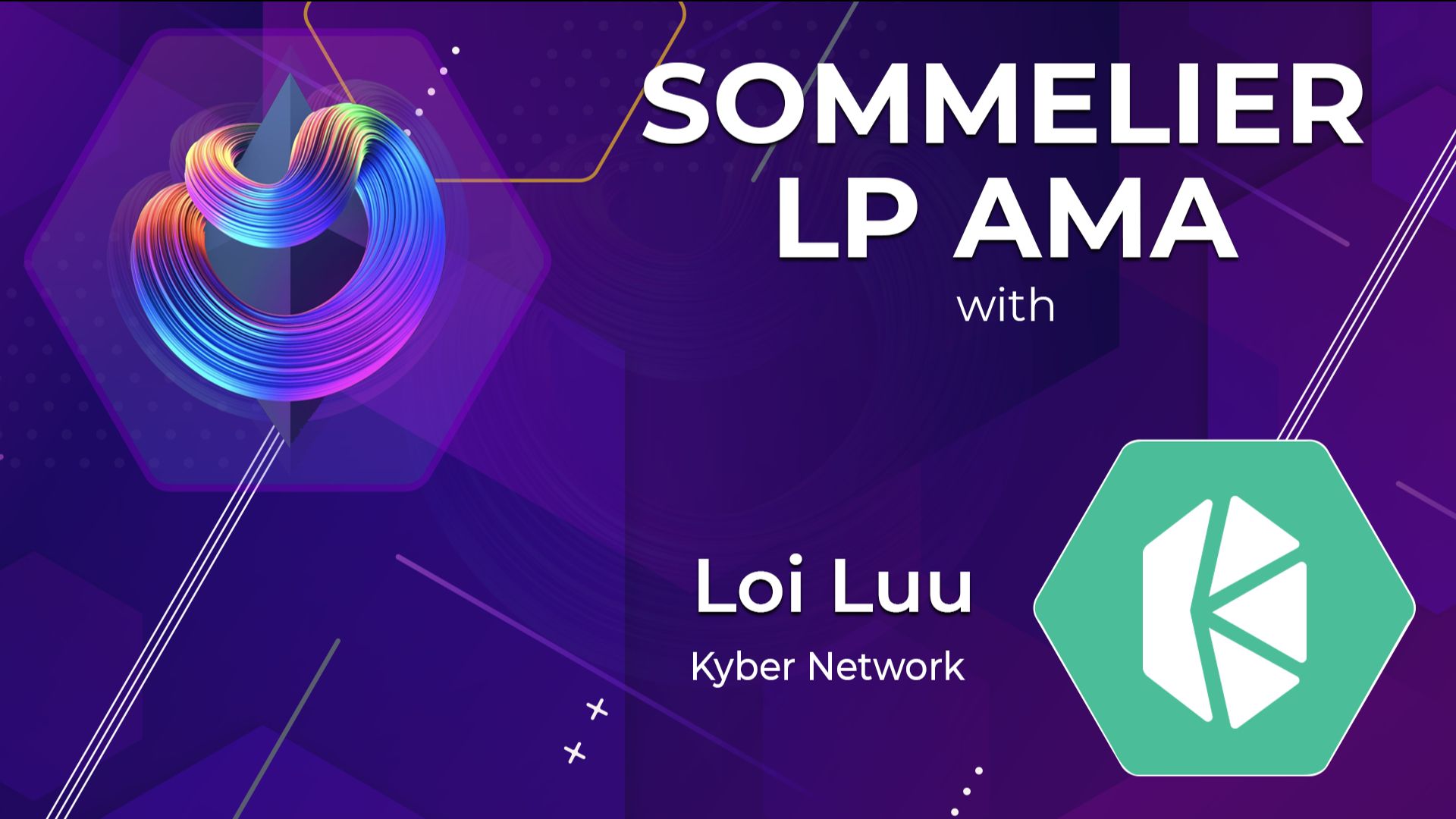
Sommelier Liquidity AMA With Loi Luu From Kyber Network
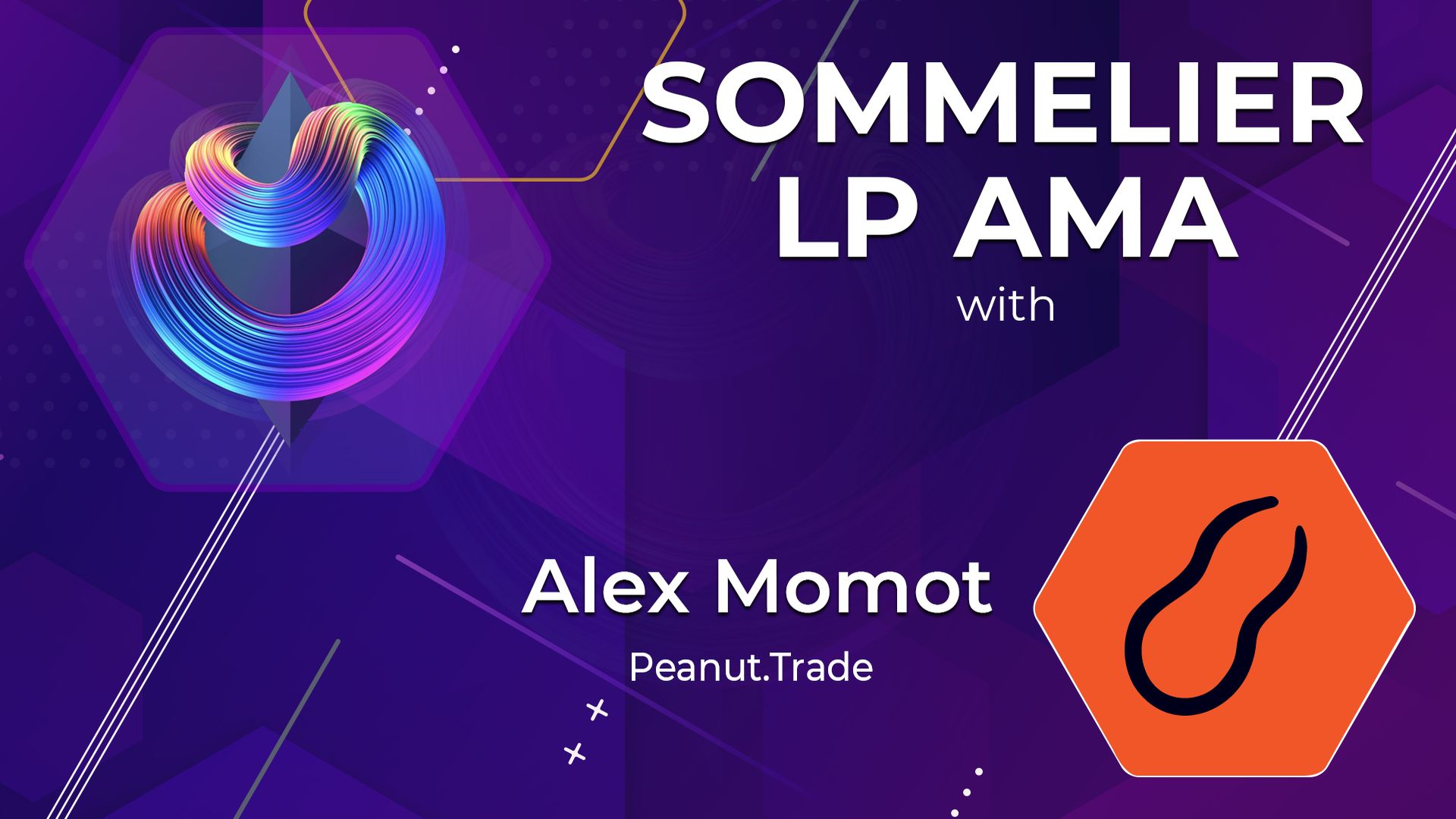
Sommelier Liquidity AMA With Alex From Peanut
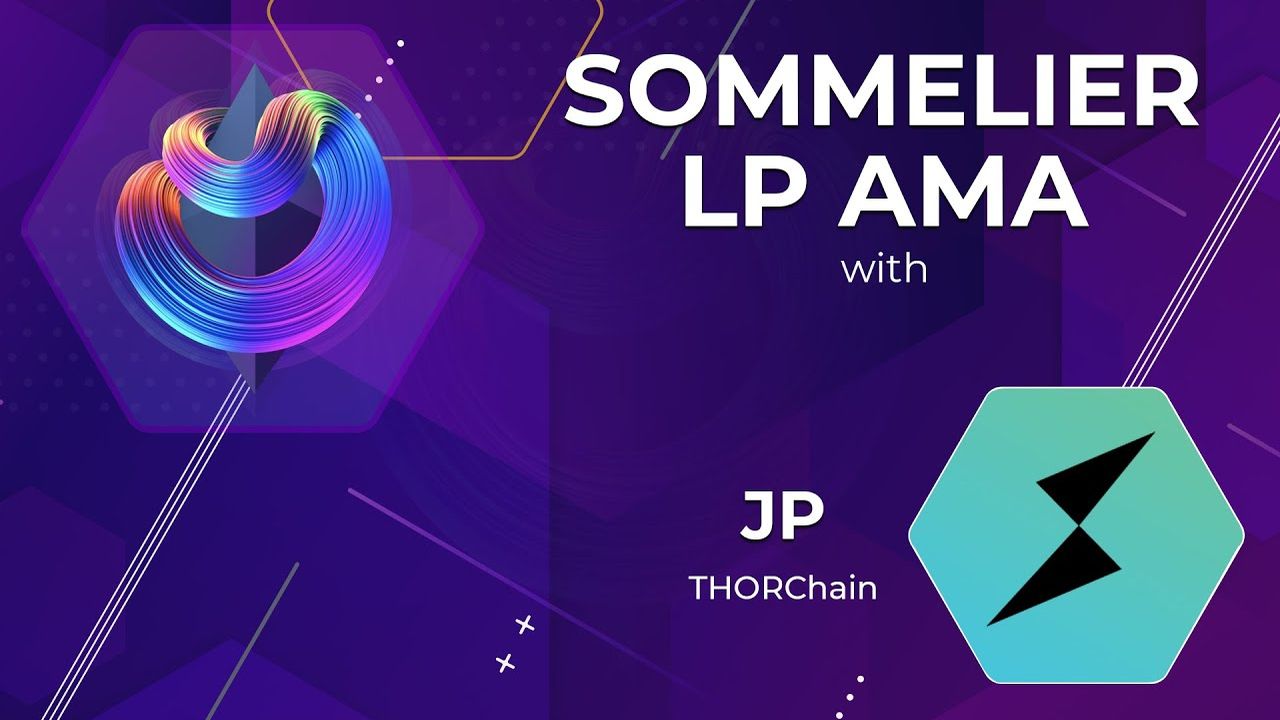
Sommelier Liquidity AMA With JP From THORChain

Sommelier Liquidity AMA With Alan Chiu From OMGX Network
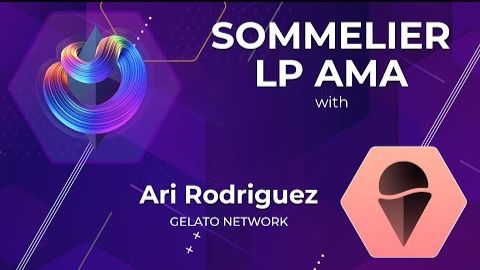
Sommelier Liquidity AMA With Ari From Gelato Network
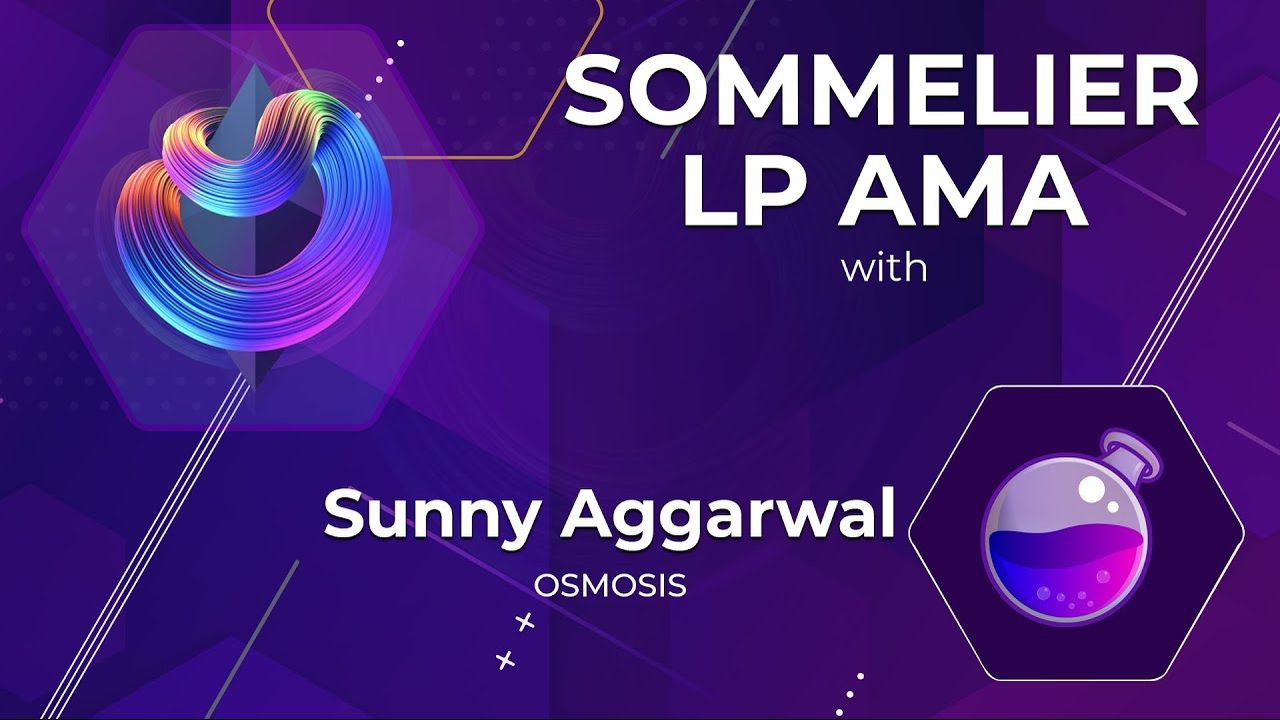
Sommelier Liquidity AMA With Sunny Aggarwal From Osmosis

A Fine Sommelier Explanation of Bollinger Bands With Kevin Kennis
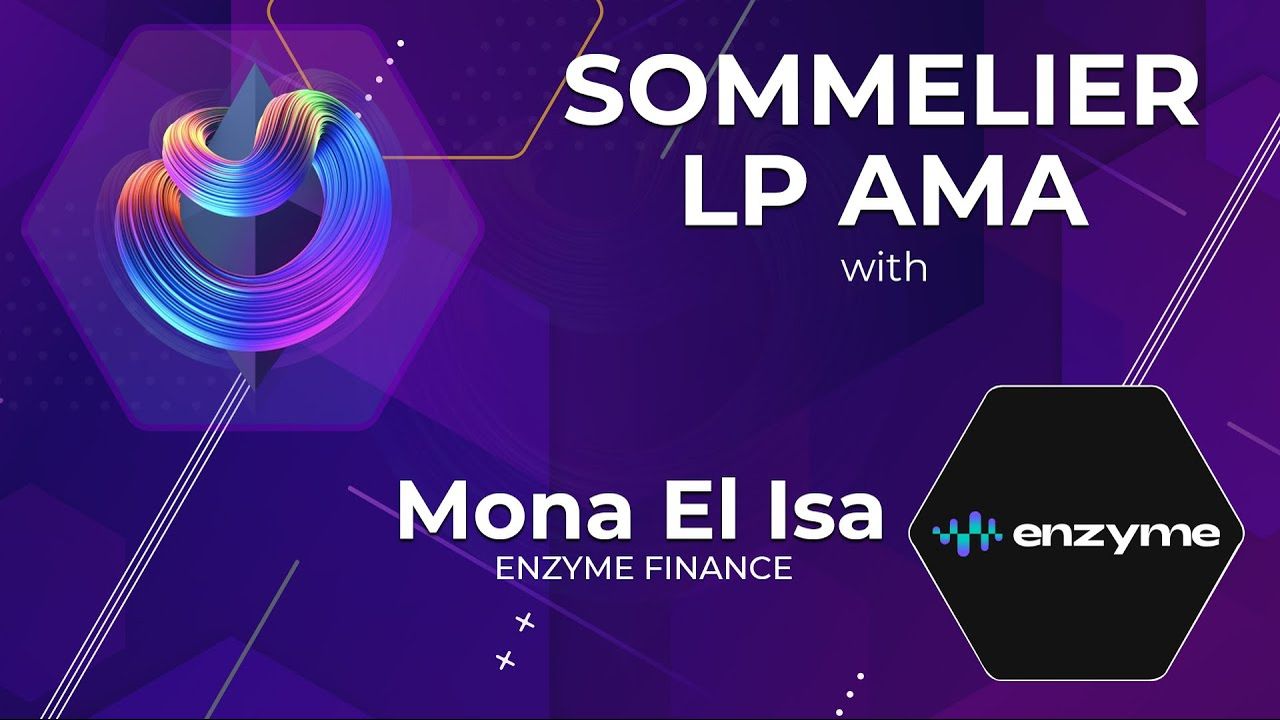
Sommelier Liquidity AMA With Mona El Isa From Enzyme
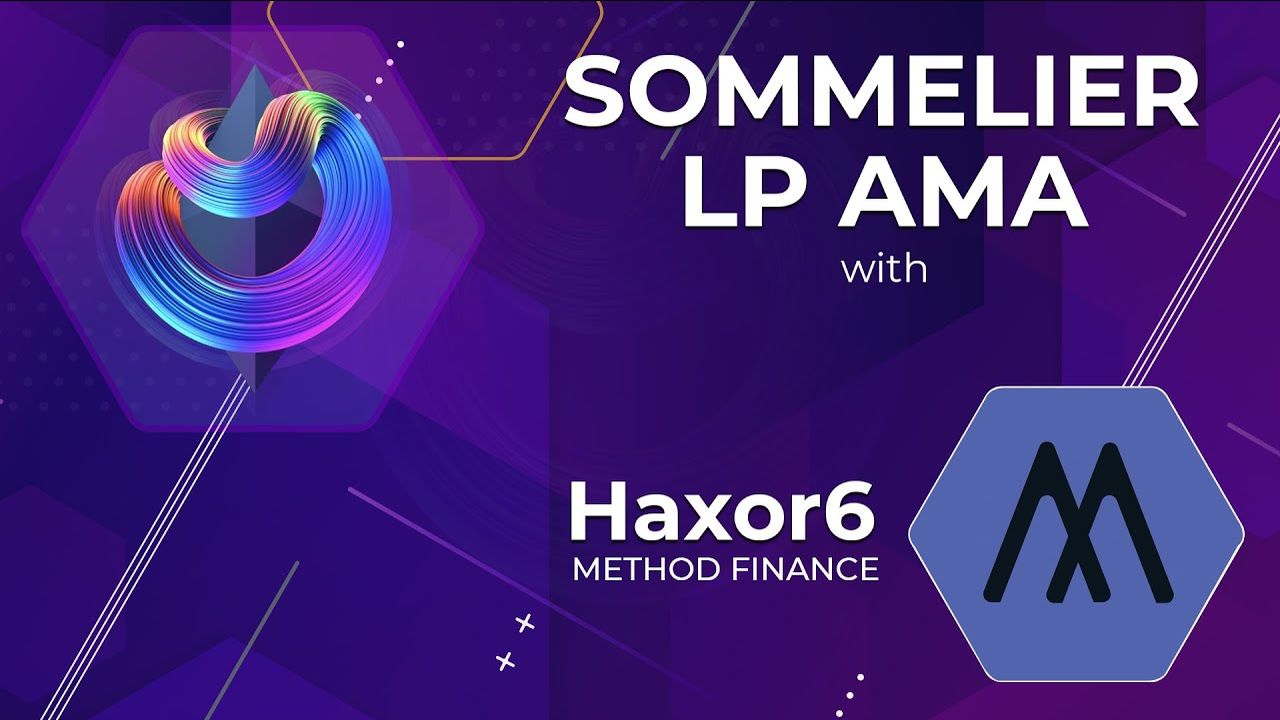
Sommelier Liquidity AMA With Haxor From Method Finance

Sommelier Liquidity AMA With Tor From Secret Network
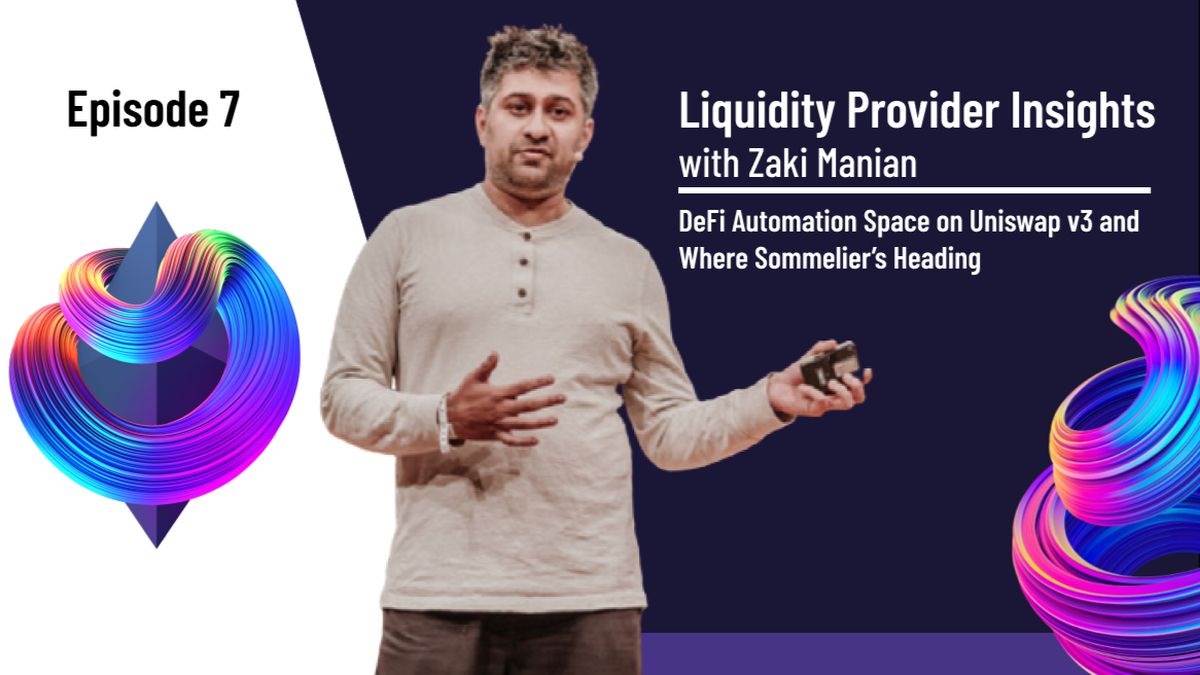
Liquidity Provider Insights With Zaki Manian - Ep. 7 - DeFi Automation Space on Uniswap v3 and Where Sommelier’s Heading
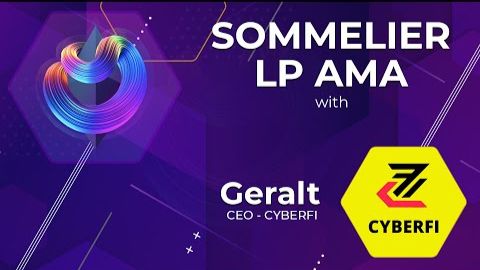
Sommelier Liquidity AMA With Geralt From CyberFi

A Pairings Tutorial of Two Sided Liquidity Addition with Sommelier

Liquidity Provider Insights with Zaki Manian - Ep. 6 - Liquidity Providers Need to Gear Up for a Multi-Chain World

Three New Summer Features for Liquidity Providers
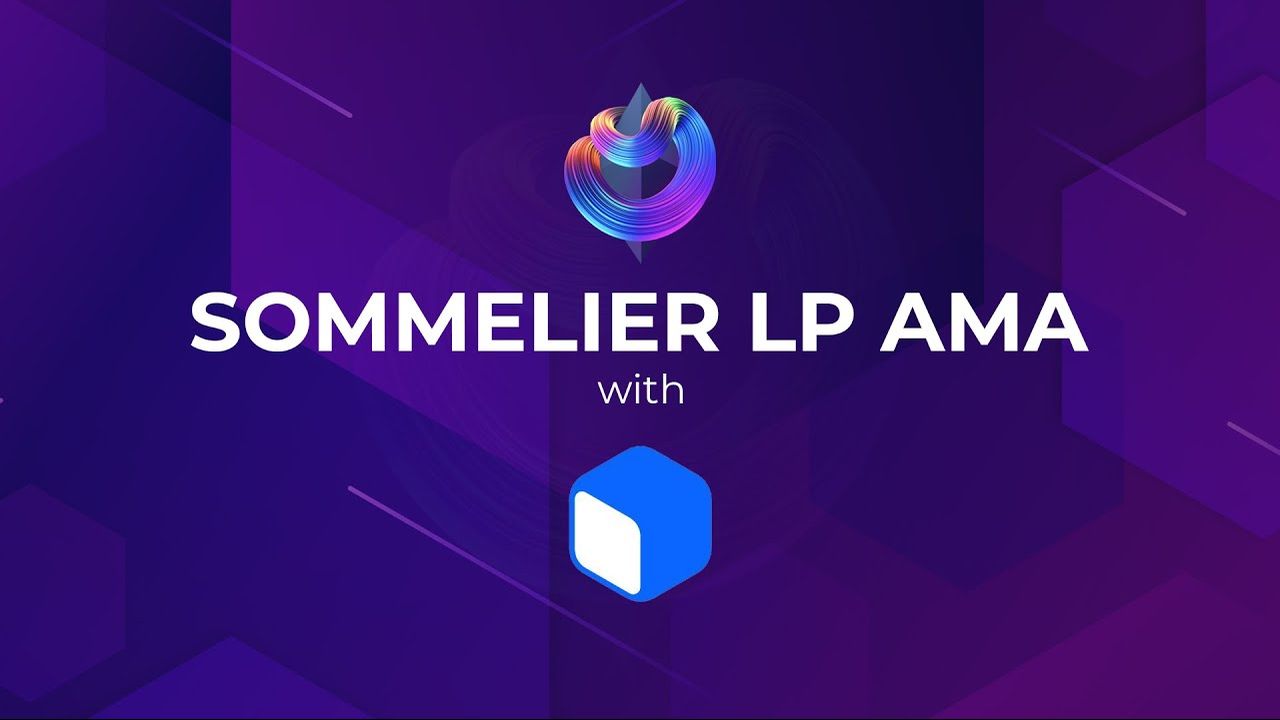
Sommelier Liquidity AMA with Tom C and Max W from Charm

Sommelier Liquidity AMA with Dereek69 & Shalaquiana from BIOPset

Sommelier This Week - June 3rd 2021: The Road to Mainnet
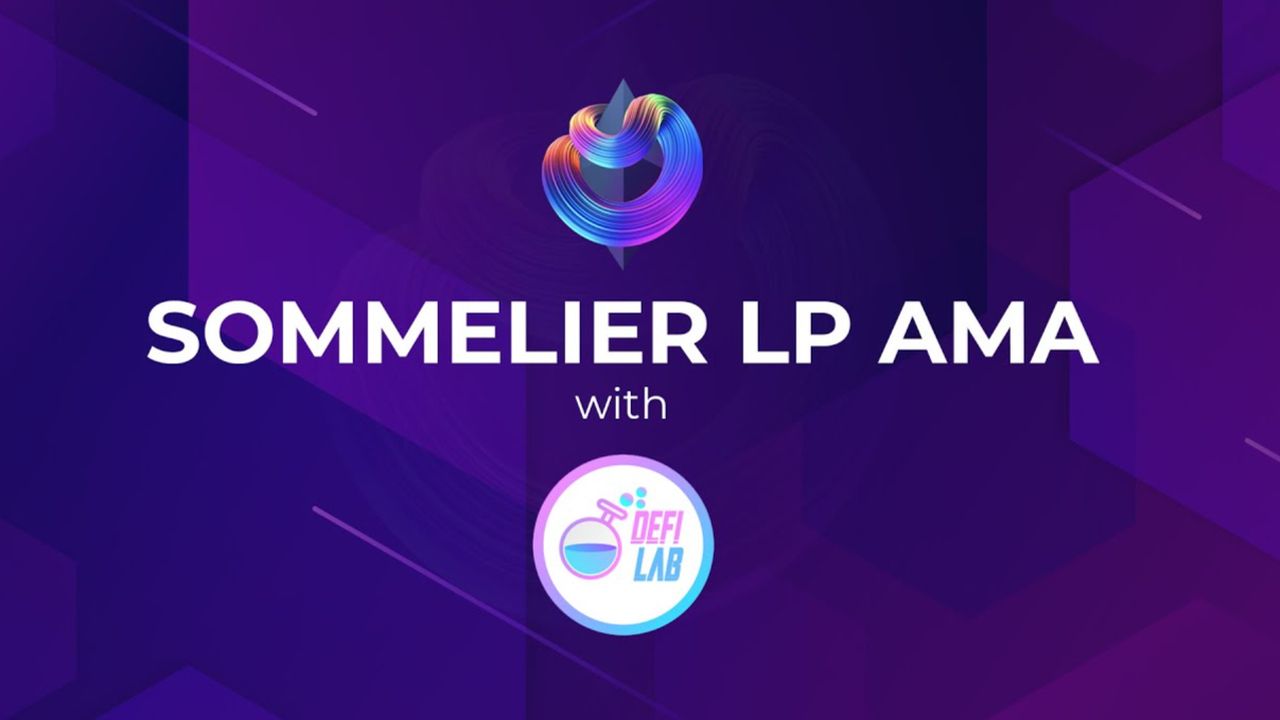
Sommelier Liquidity AMA with Federico Landini from DefiLab
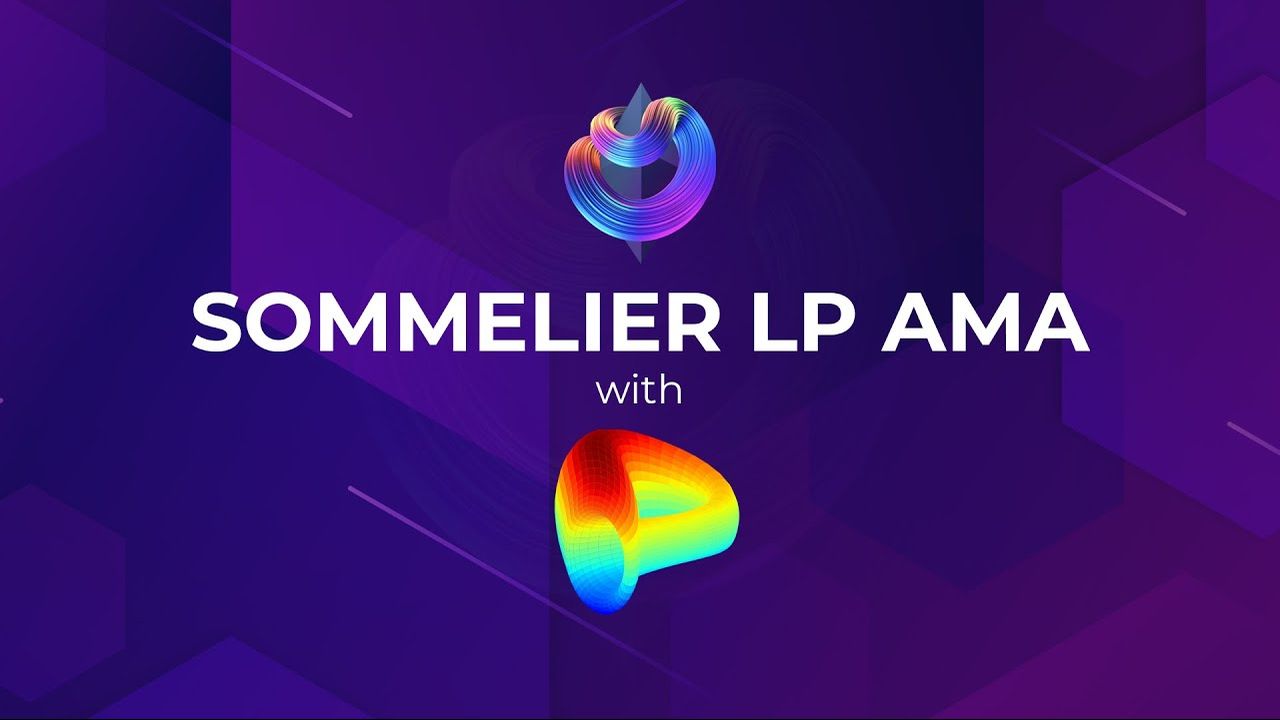
Sommelier Liquidity AMA with Michael Egorov from Curve

Liquidity Provider Insights with Zaki Manian - Ep. 5 - A Bright Light at the End of a Long, Tough Weekend for Bitcoin

Sommelier This Week - May 27th 2021: What Aspiring Sommelier Validators Need to Know on Last Week’s Protocol and App Progress
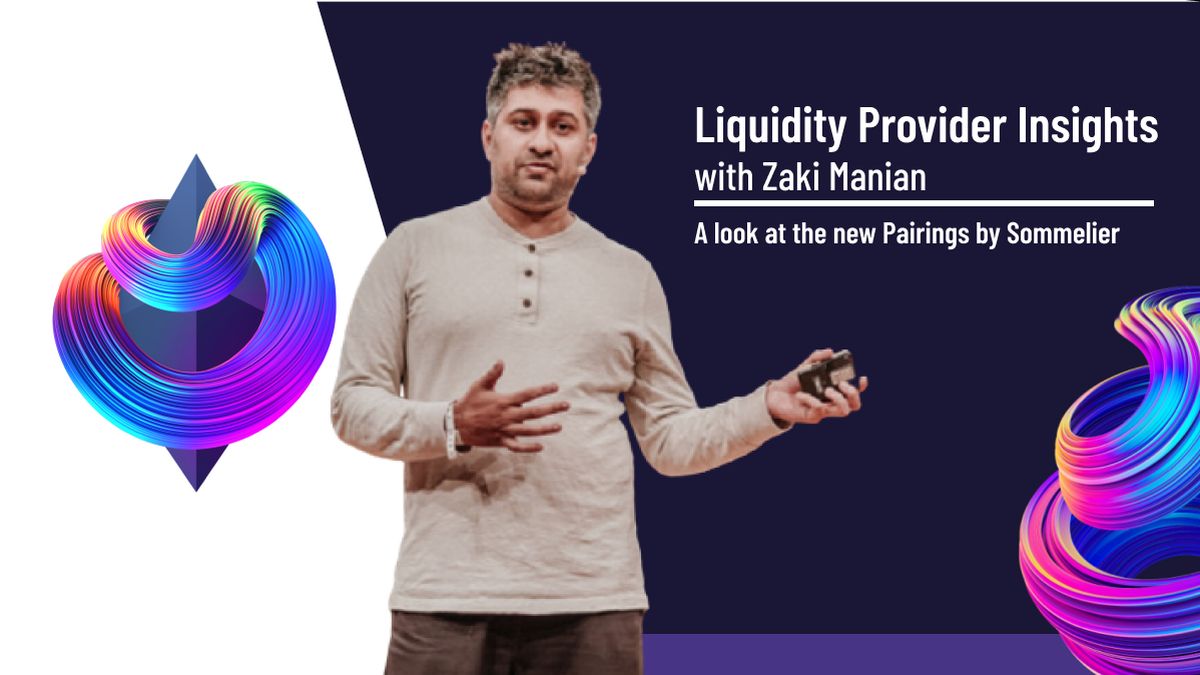
Liquidity Provider Insights with Zaki Manian (Special Edition) - Ep. 4 - New Pairings Release

Sommelier R&D AMA With Yaniv Tal From the Graph
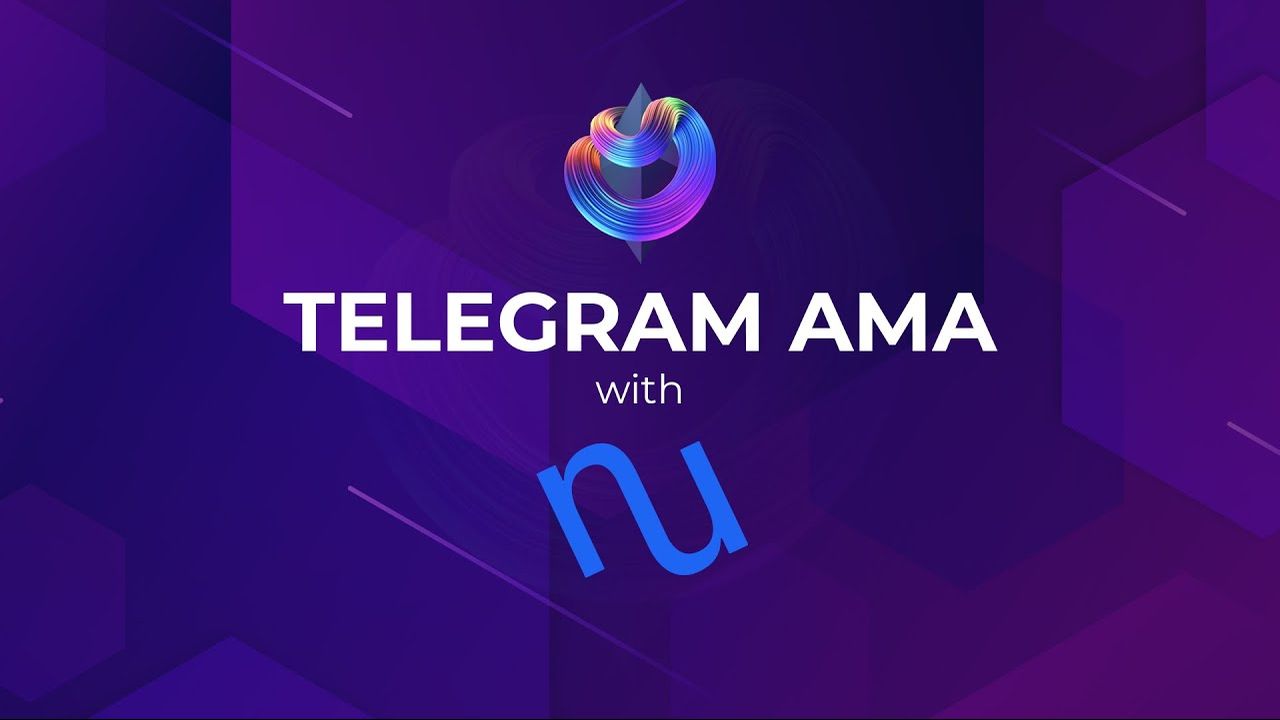
Sommelier Liquidity AMA with MacLane Wilkison from NuCypher

The Eight Steps to Become a Liquidity Provider with Pairings
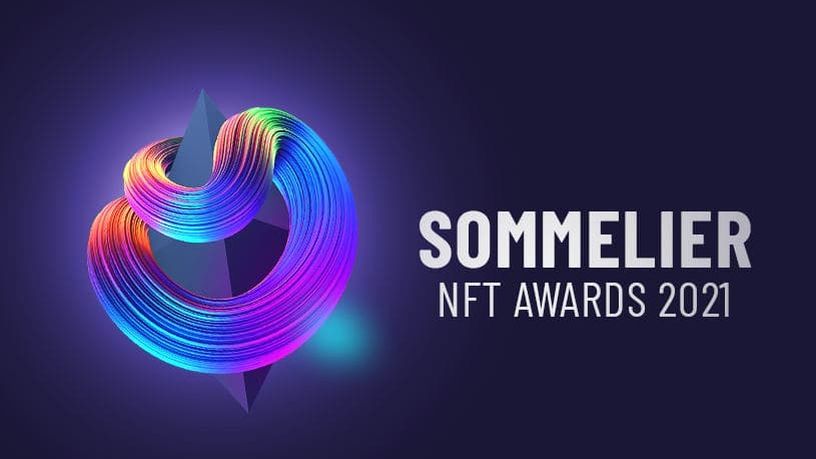
Sommelier NFT Awards - May 18th, 2021
Pairings By Sommelier: The FAQ
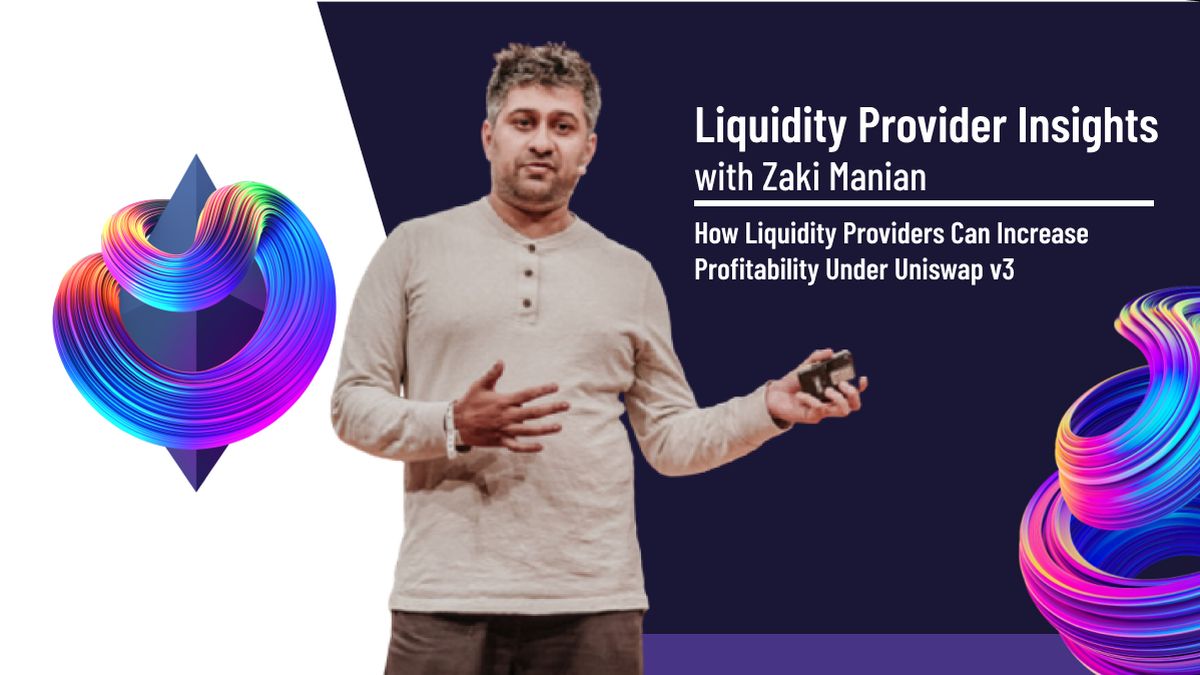
Zaki Manian Breaks Down What Liquidity Providers Need to Know Under Uniswap v3

Sommelier This Week - May 6th 2021: How This Week’s Protocol and App Progress Weaves Together to Make a Product
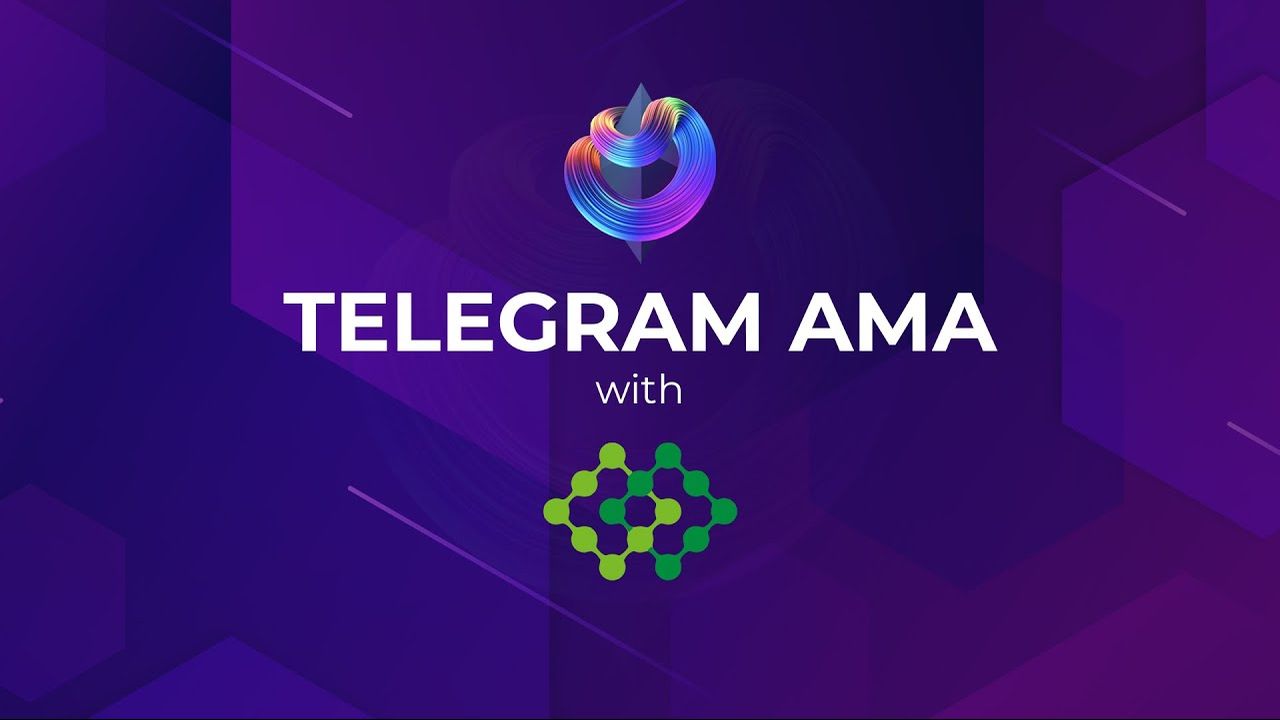
Sommelier Liquidity AMA with Dan Thomson from InsurAce

Sommelier This Week - April 29th 2021: Weeks Away From a Taste of the Sommelier App Experience and How the Dev Team Stays on Track
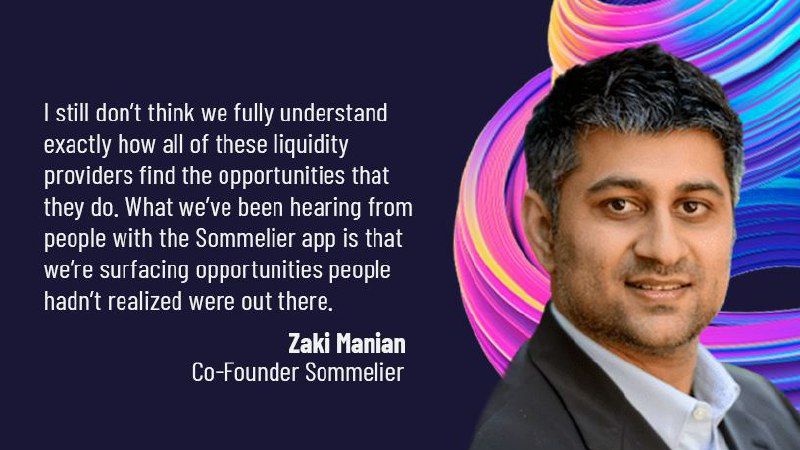
Zaki Manian Breaks Down a Phase Change Liquidity Providers Need to Know About Automated Market Makers

Introducing Jehan Tremback: Sommelier Core Developer and Althea Co-Founder that pushes the Limits of the Blockchain Bridge with Gravity

Sommelier This Week - April 22nd 2021: An Inside Look at Progress on Coordinating Sommelier Components That Contribute to the Chain

Sommelier This Week - April 15th 2021: Providing a Best-in-Class Experience for Uniswap Liquidity Providers

Sommelier Announces $1M R&D Grant from The Graph Foundation

Introducing LP Rewards: This Week With Cellframe
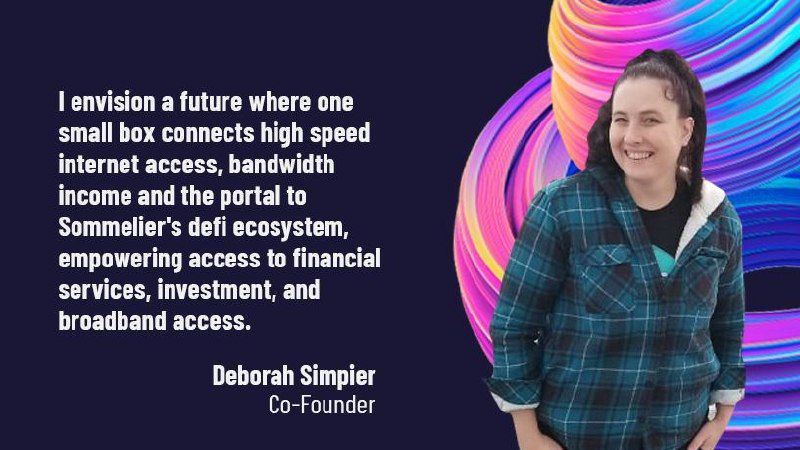
Introducing Deborah Simpier: Althea CEO and Sommelier Co-Founder Who Brought the Gravity Bridge to Life in The Cosmos

Sommelier This Week - April 8th 2021: What Uniswap v3 Means For Sommelier Architecture and Validators
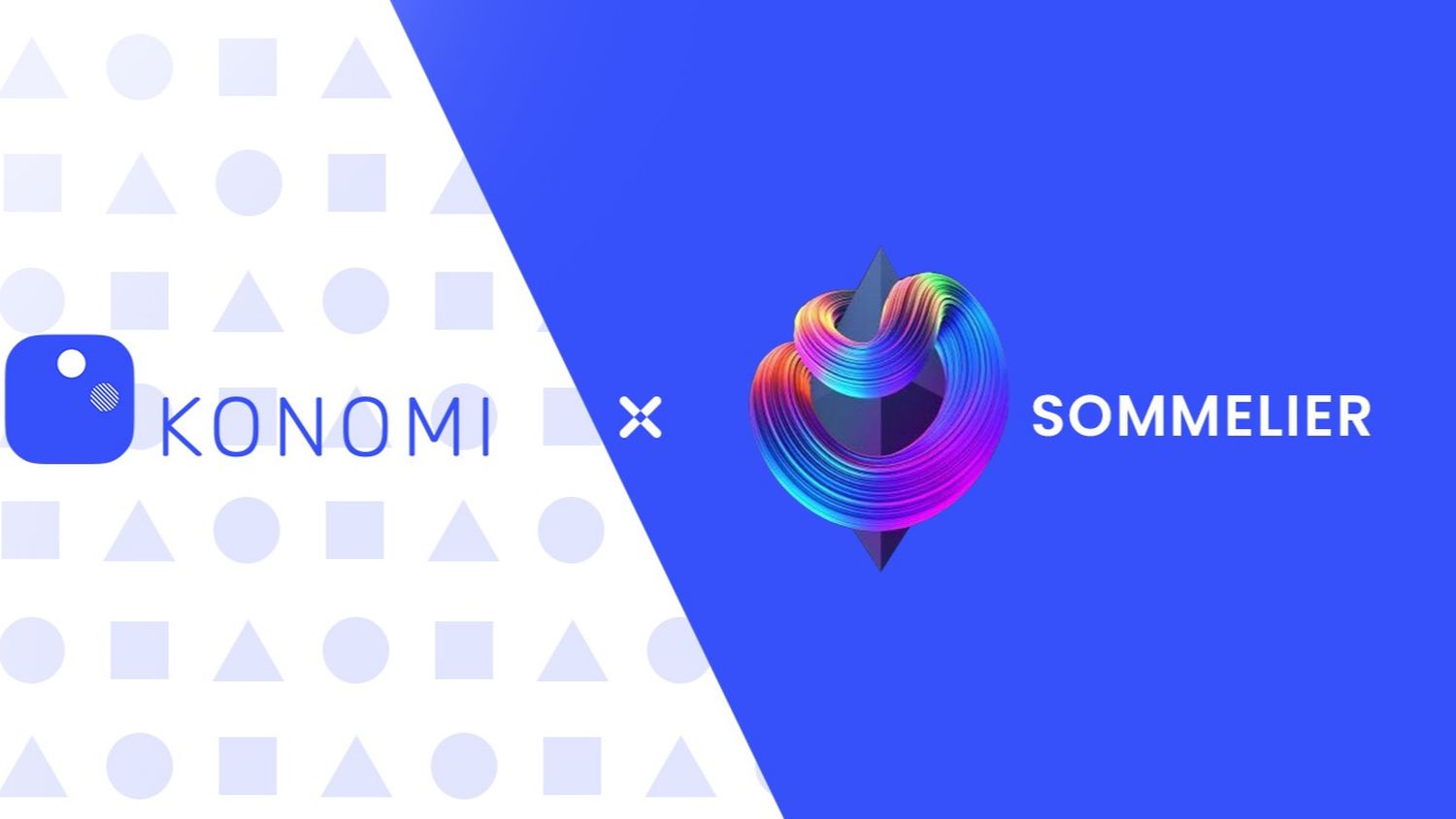
Introducing Sommelier LP Rewards Program

Sommelier This Week - April 1st 2021: Gravity Bridge and Private Testnets
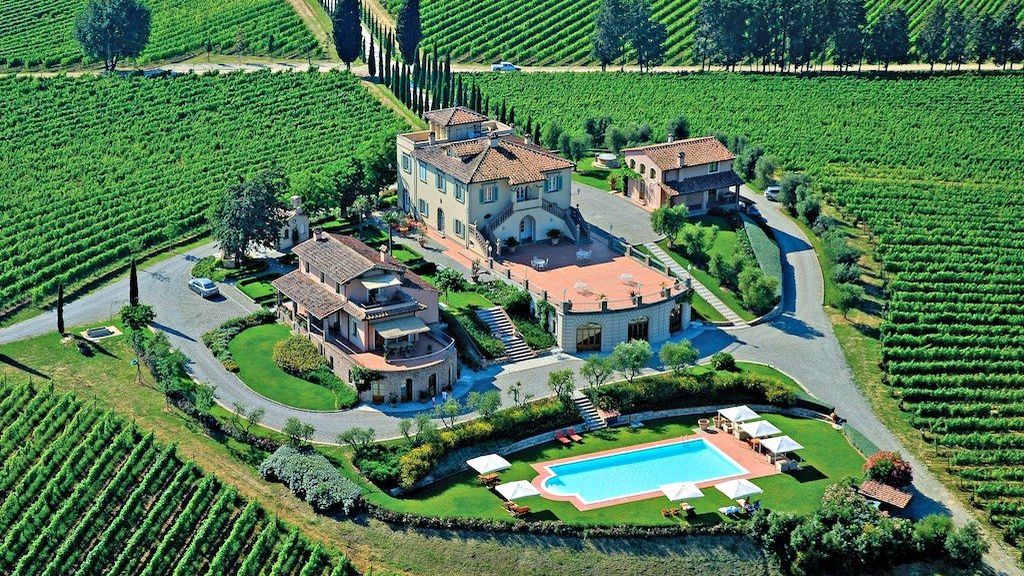
Blockchain startup decides to acquire a California winery and host NFT wine parties
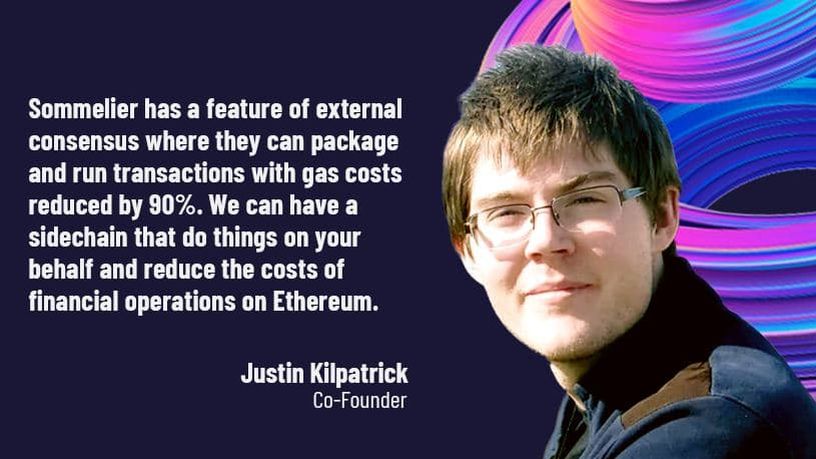
Introducing Justin Kilpatrick: The Blockchain Bridge Wizard Who Maintains Gravity

Five Ways UniswapV3 changes the world for Liquidity Providers on the AMM
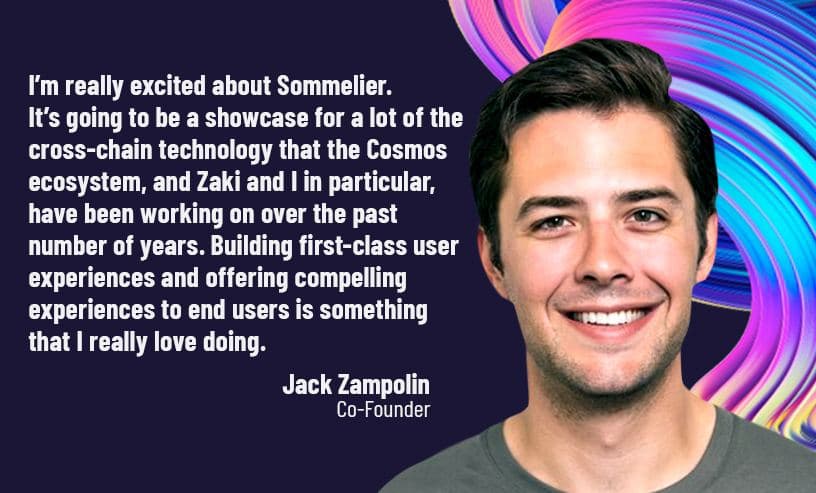
Introducing Jack Zampolin: On Becoming A Sommelier in The Cosmos
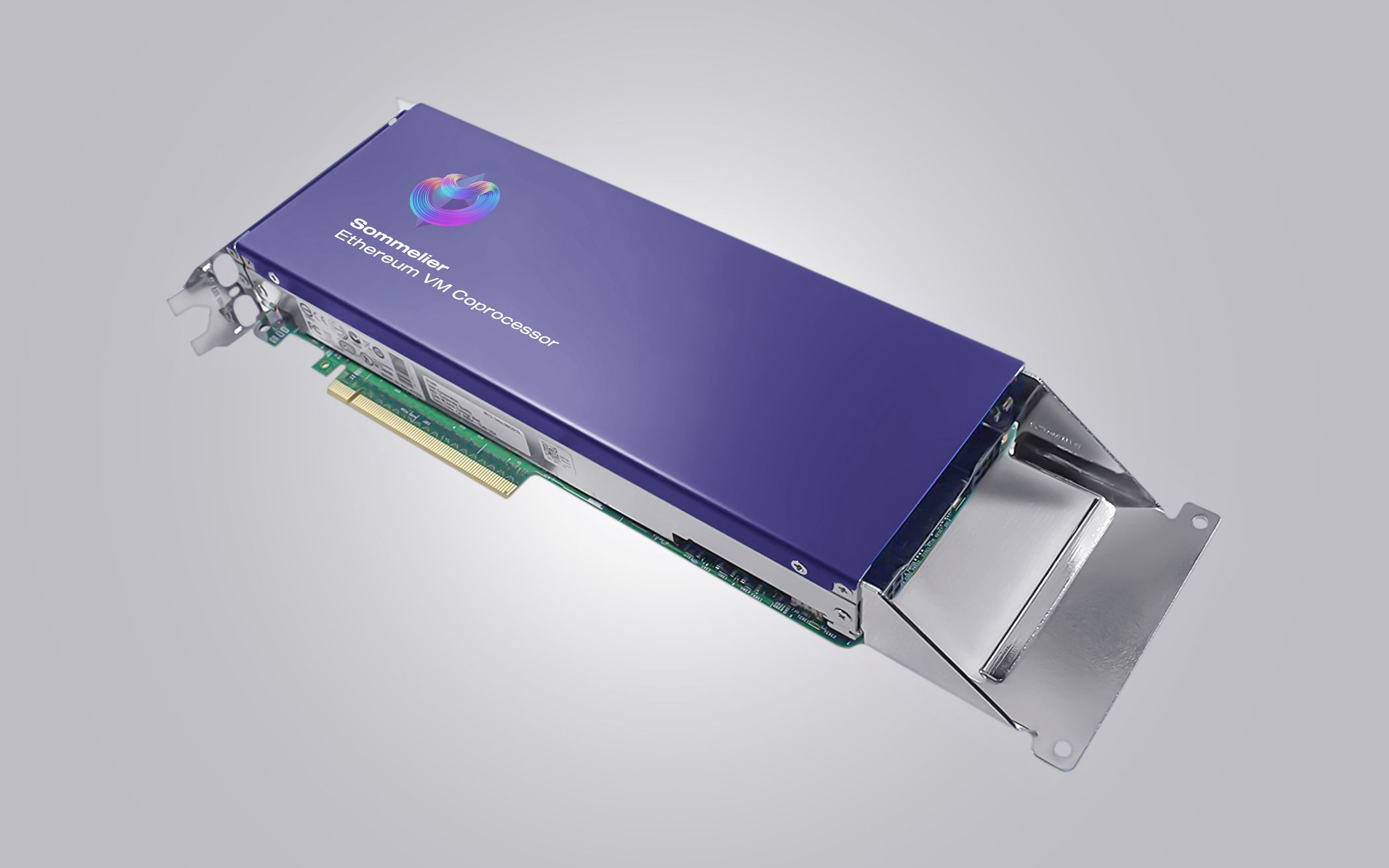
Sommelier: Welcome To The New CoProcessor For Ethereum
© 2025 Somm by Bajanss OÜ –Maakri 36-50, Tallinn, Estonia 10145